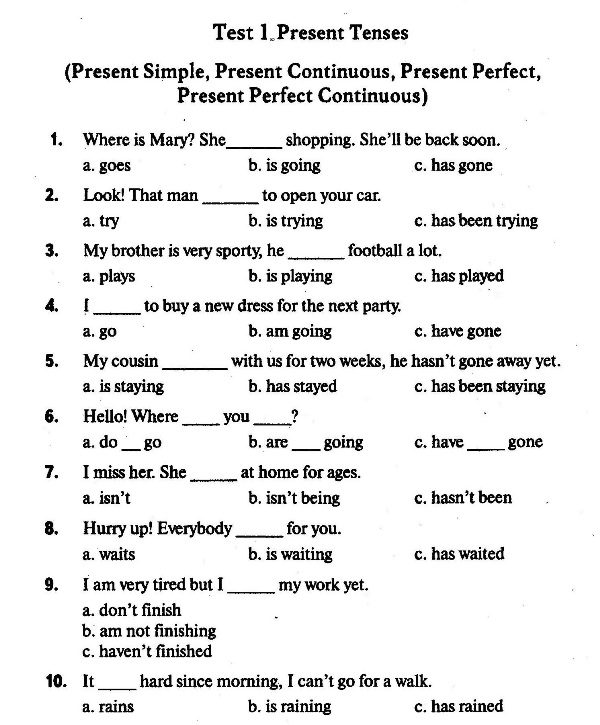Это важный урок, потому что мы будем повторять и СИСТЕМАТИЗИРОВАТЬ времена группы Present. Как известно, времена группы Present включают в себя 4 времени глагола (tenses):
- Present Simple Tense (уровень 2, intermediate) СКОРО
- Present Continuous Tense (уровень 2, intermediate) СКОРО
- Present Perfect Tense (уровень 2, intermediate)
- Present Perfect Continuous Tense (уровень 2, intermediate)
В этом уроке мы повторим, чем отличаются времена группы Present между собой и как они работают в активном залоге. В конце предлагается Заключительный тест на времена группы Present.
Времена группы Present (Simple, Continuous, Perfect, Perfect Continuous) — повторение
Упражнение (вводное). Выберите время глагола действия Present Simple, Present Continuous, Present Perfect или Present Perfect Continuous, которое вы бы использовали для перевода на английский язык следующих предложений:
- Я учу английские слова каждый день.
- Я учу английские слова уже час.
- Я учу английские слова. Не мешай мне.
- Я выучил слова. Проверь меня.
Какая характеристика у глагола-действия в предложениях 1-4?
a. регулярное действие
b. процесс, незаконченное действие в настоящем
c. завершенное действие в настоящем, есть результат
d. действие, длящееся определенный период времени
Вы можете проверить себя — ОТВЕТЫ в конце урока.
Обратите внимание, что Present Simple, Present Continuous and Present Perfect Continuous переводятся на русский язык НАСТОЯЩИМ временем глагола, а
Present Perfect – ПРОШЕДШИМ временем глагола.
Итак, подведем итог:
Present Perfect отвечает на вопрос что уже сделал(а)? — I have watched the cartoon.
Present Continuous отвечает на вопрос что еще делаю? — I am watching the cartoon.
Present Perfect Continuous отвечает на вопрос что делаю в течение …? — I have been watching the cartoon for 20 minutes.
Present Simple отвечает на вопрос что обычно делаю? — I watch cartoons every day.
* * *
Времена группы Present (Simple, Continuous, Perfect, Perfect Continuous). Упражнения
Упражнение 1. Сопоставьте время глагола и временное выражение (некоторые используются дважды):
Look! (2) ever, always (2), never (2), seldom, often, now, nowadays, usually, at the moment, yet, already, just, recently, lately, every day, on Mondays, tonight, today (2), regularly, sometimes, once a year, once a week, Listen! (2) How long…? for (2), since (2), these days, still, etc.
* * *
Упражнение 2. Раскройте скобки, чтобы получить Present Simple или Present Perfect.
- I can’t speak about the book. I (not read) it yet.
- Every day I (wind up) my watch at 7 o’clock in the morning.
- It’s Friday. … you (see) him this week?
- It’s a pity, but I (not buy) this dictionary yet.
- As a rule, we (do) many exercises in class.
- He (tell) this joke many times.
- I already (translate) these sentences into French.
- They (have) their English many hours a week.
- She (work) much and usually (get) many good marks.
- We (buy) a new TV set this year.
* * *
Упражнение 3. Раскройте скобки, чтобы получить Present Simple, Present Continuous или Present Perfect.
1. I must know what you (talk) about. 2. I (be) in this country for some time. 3. He (admire) you greatly. He (see) the play three times. 4. I (not know) what Harry (tell) you. 5. I want to see how much he (change) since I saw him last. 6. We (be) to the cinema about twice a week since then. 7. Hello, what you (do) here at this late hour? 8. I (think) you never (do) any harm to people. 9. I always (stay) at home in the evenings. 10. I (hear) you (look) for a new house.
* * *
Упражнение 4. Раскройте скобки, чтобы получить Present Simple, Present Continuous, Present Perfect Continuous или Present Perfect.
- Is Andy here? – I don’t know, I … (not see) him today.
- Where … you … (go)? – To the library.
- Would you like to borrow this magazine? – No, thanks. I … (read) it before.
- Betty’s bus … (arrive) at 5 o’clock. I must go and meet her at the bus station. (Будущее в английском языке, способ №8 Расписание)
- Have you seen my record book? I … (look) for it all the morning.
- Mike … (talk) to his friend for an hour already.
- More and more forests … (disappear) because of fires nowadays. (Времена, уровень 3)
- How long … you … (work) on this problem?
- The first lesson … (not finish) at 9.45. (Будущее в английском языке, способ №8 Расписание)
- They … (play) football tonight.(Будущее в английском языке, способ №2 Запланированное действие в ближайшем будущем)
- Linda is disappointed. She … (fail) her test.
- School … (prepare) children for life.
- We … (have) a party next Saturday night. Will you come?(Будущее в английском языке, способ №2 Запланированное действие в ближайшем будущем)
- … you … (try) to take photos? It’s not allowed, you know.
- … you … (remember) where he … (work)?
Ответы вы найдете в конце урока.
Заключительный тест на времена группы Present
(уровень 2, средний)
Данный тест можно использовать для проверки знаний уровня знаний по английскому языку в 9 классе средней школы)

Данный тест взят из Сборника для подготовки к экзамену по английскому языку за 9 класс (уровень pre-intermediate). СКАЧАТЬ более сложные тесты на времена группы Present.
* * *
ОТВЕТЫ
Здравствуйте! Для получения доступа к ответам необходимо оформить подписку. Ссылка в боковом меню — ОТВЕТЫ.
Pre-Intermediate. Council of Europe-A2
Unit 15
Part 1
TEXT 1.15
Everyday Life
MR. PRIESTLEY: You all need the words and phrases we use to
describe our daily actions, so suppose I tell you the things that I do, more or
less, every day. By the way, which tense ought I to use for that, Olaf?
OLAF: I think you ought to use the Simple Present Tense.
MR. PRIESTLEY: Why?
OLAF: Because that is the tense generally used for actions
that are “habitual” or repeated.
MR. PRIESTLEY: Very good, Olaf. Now I’ll begin: I wake up at about
seven o’clock and then it is time for me to get up. I like a cold bath every
morning, so I put on my dressing-gown and slippers and go to the bathroom. The
water feels very cold on winter mornings, but I rub myself hard with the towel
and soon I feel quite warm.
Then I shave, brush my teeth and wash my
face and go back to the bedroom to dress. I comb my hair, take a clean
handkerchief out of the drawer and go downstairs for breakfast at a quarter
past eight. After breakfast I sit and read my morning paper and smoke a
cigarette, or in summer I have a walk round my garden. I go into my study at
nine o’clock and meet my students there, and the day’s work begins. At
twelve-thirty I have a break for lunch. I usually have this at home, but
sometimes I go out for lunch and have a chat with my friends before beginning
work again at two o’clock. Then I have a cup of tea and a biscuit, and in
summer I spend an hour or so in the garden and play a few games of tennis, or I
go to the golf club and have a round of golf.
We have dinner about seven-thirty or
eight o’clock, and then we sit and talk, listen to the radio or watch TV, or
Mrs. Priestley plays the piano. Sometimes, in summer, we take out the car and
go for a drive in the country; in winter we go to the cinema or the theatre.
But that is not often. I have a lot of work to do, and usually after dinner or
supper I go to my study and read or write until twelve or one o’clock.
That’s my day. Now, here is Mrs.
Priestley to describe a woman’s day.
ЛЕКСИКА
a
phrase
daily
an
action
more
or less
by
the way
which
a
tense
habitual
repeated
It’s
time
a
dressing-gown
slippers
a
bathroom
to
rub oneself
to
shave
to
brush one’s teeth
a
bedroom
to
dress
to
comb
a
handkerchief
a
drawer
downstairs
a
break
a
chat
a
biscuit
to
spend
a
game
a
golf club
to
watch TV
a
drive
Part 2
TEXT 2.15
Everyday Life II
MRS. PRIESTLEY: I, too, get up soon after seven and go downstairs
to help Susan with the work. She cleans out the stove and fills it up with
coal, so that we get plenty of hot water all day. Then she takes out the ashes
from the sitting-room fire and relays it with paper and sticks and coal. Then
it is all ready to light, and only needs a match put to it.
While she is doing that, I get the
breakfast ready. I put the table-cloth on the dining-room table and put out the
knives, forks and spoons, and the cups, saucers and plates. Then I go and cook
the breakfast. I soon have the bacon and eggs cooking in the frying-pan. I make
toast, boil the kettle for tea or coffee, and we are ready to sit down at a
quarter past eight.
After breakfast, Susan and I clear away
the dishes. Then she washes and dries them, and I go to do my shopping.
Sometimes I go to the shops – to the butcher’s to order the meat, to the grocer’s
to buy tea, coffee, sugar, etc., but often I ring them up and order what I want
by phone.
Then Susan and I go upstairs to make the
beds, dust upstairs and downstairs, and do the carpets with the vacuum cleaner.
It is about eleven o’clock by this time, so I change my clothes and begin to
get ready for lunch. After lunch I do some sewing or go for a walk and visit my
friends.
Then Mr. Priestley joins me for
afternoon tea in the sitting-room – usually bringing one or two of his students
with him. We have bread and butter (cut thin), jam or honey, cakes and
biscuits.
ЛЕКСИКА
to
clean out
a
stove
to
fill up with
coal
plenty
of
ashes
to
light (lit, lit)
a
match
while
a
table-cloth
a
knife
a
fork
a
spoon
a
frying-pan
a
kettle
to
clear away
dishes
to
dry
to
do shopping
the
butcher’s
to
order
meat
the
grocer’s
sugar
to
ring up
by
phone
to
dust
upstairs
a
carpet
a
vacuum cleaner
to
change clothes
to
get ready
to
join
to
cut
jam
honey
Part 3
TEXT 3.15
Everyday Life III
MRS. PRIESTLEY: My husband has already told you how we spend our
evenings – in summer, tennis, golf or a drive in the car; in winter, music, the
cinema, a concert; sometimes dinner in town and theatre afterwards. Sometimes,
in fact very often, we just have a quiet evening at home. You see, John is at
the University and Margaret is now at a boarding-school and comes home only at
the week-ends; so, except when they are on holiday, there’re only the two of us
at home. On these quiet evenings we have a very simple supper round the fire in
the sitting-room, and when that is over my husband sometimes works in his study
at a book that he is writing, but quite often he says that he has done enough
work for the day, and then he sits in his armchair at one side of the fire with
his pipe and, for a change, a detective story. I sit on the other side with my
book or my sewing; and Sally, our cat, lies on the carpet before the fire or
jumps up on my husband’s knees. He is certainly Sally’s best friend, and wherever
he is, in the house or in the garden, there you will find Sally, too. And when
the wind is blowing through the trees outside and the rain is beating on the
windows, our warm fire seems warmer and more cheerful than ever – and I often
think that these “quiet” evenings are the best evenings of all.
ЛЕКСИКА
a concert
afterwards
in fact
a boarding-school
for a change
a detective story
to lie (lay, lain, lying)
to jump up
knees
wherever
a wind
to blow
through
to beat
cheerful
Part 4 Speech Exercises to Unit 15
1. Ответьте на вопросы:
1.
When do you usually wake up? Do
you get up at once in the morning?
2.
Do you take a cold bath every
morning? Do you always take a shower?
3.
Do you rub yourself with the
towel? How do you feel afterwards?
4.
What do you usually do in the
morning? How long does it take you?
5.
At what time do you usually have
breakfast? Who cooks it for you?
6.
Where do you go after breakfast?
Are you sometimes late?
7.
Do you have a break for lunch? Do
you eat much for lunch? What do you usually eat?
8.
When do you usually have dinner?
Do you always have it at home?
9.
How do you spend your time after
dinner?
10.
At what time do you have your
supper?
11.
Do you go to bed early every day?
What do you like to do before going to bed?
12.
Do you sleep well? How many hours
do you need to have a good sleep?
13.
Does your wife/husband have a
tiring day? Does she/he work?
14.
What housework do you do every
day? Who helps you about the house?
15.
How do you usually spend your
evenings? Are they quiet or not?
2.
Прочитайте и перескажите текст:
Hob’s Day
Hob
wakes at eight o’clock in the morning, and gets up at half past eight. He
doesn’t have a cold bath; he just washes his hands and face and brushes his
teeth, if he remembers. Then he goes downstairs for breakfast. He eats lots of
eggs and bacon and toast and he drinks three or four cups of coffee.
When
he has finished breakfast, the day’s work begins. He walks round to Mr.
Priestley’s house; he is often late. He shows Mr. Priestley his homework, if he
has done any, and it is usually full of mistakes. He is glad when it is time
for lunch.
For
lunch Hob usually has roast beef and vegetables, and after lunch he always has
a cup of tea with lots of sugar in it. Sometimes he sits in an armchair and
reads the newspaper or a detective story, and sometimes, but not often, he does
his work for Mr. Priestley. In the evening after a tea of bread, butter, honey
and cakes, Hob likes to watch TV in front of the fire at Mr. Priestley’s, or to
visit other friends and tell them his funny stories.
3.
Задайте вопросы к
тексту «Hob’s Day».
4.
Опишите свой
обычный день.
5.
Расскажите о своих
домашних обязанностях.
6.
Расскажите, что Вы
делали вчера.
Unit 16
Part 1
TEXT 1.16
What did you do on your holiday?
I
spent my last summer holiday in a summer camp. The camp was in the mountains
and it was fantastic. Every morning I woke up and enjoyed fresh air. We made
our beds and did some morning exercises. Then we ate breakfast. Every day we
tried different activities: we went hiking and played different sports. But
most of all I loved the swimming. While in the camp, I also met many other
students. Most of them were my age and very soon we became good friends. When
we returned home we started writing to each other. I sent e-mails to all of my
friends. All in all, my summer holiday was very exciting!
At the Customs
Customs officer: Are you from France?
Passenger: No. I am from Russia.
C.o.: Have you got a civil passport?
P.: No. I’ve got an international one.
C.o.: Can you show it to me?
P.: Yes, of course. Here it is.
C.o.: Oh, yes, I see… Open your bag, please.
P.: Here you are.
C.o.: Do you come to work?
P.: Yes, I’ve got an invitation from an engineering
company here in Toronto. We are partners.
C.o.: Are you alone here?
P.: No, I’m with my wife. She comes on a personal
visit.
C.o.: Is this your dog?
P.: Of course, not!
C.o.: Police! Here is a dog here! Take it away.
Lost in New York
A Policeman: Can I help you?
Man: Oh, yes, please. I do not know where I am.
P.: Are you a foreigner?
M.: Yes, I’m Russian.
P.: Do you live here, in New York?
M.: No, I don’t. I’m here on business. I stay at my
friend’s house. Here is my passport.
P.: I see… Your visa is good for six months. Do you
know your friend’s telephone number?
M.: 16-89… Oh, no. I don’t remember it. I know their
address. It is 12, Carnival Street, Brooklyn, New York City. Apartment 6. There
is a river near their house.
P.: I see. You must go to that bus stop and take bus
11 from there.
M.: Thank you!
ЛЕКСИКА
a
camp
fantastic
activities
go
hiking
Customs
an
officer
a
civil passport
a
bag
an
invitation
an
engineering company
a
partner
a
personal visit
alone
Police!
Take
it away!
to
lose (lost, lost)
a
policeman
a
foreigner
on
business
a
visa
a
telephone number
an
apartment
a
bus stop
ГРАММАТИКА
1.
Конструкция to have got (иметь) широко применяется в разговорной речи. Утвердительное предложение: He has got a visa for two
years. Вопросительное предложение: Has he got a visa for two years? – Краткие ответы: Yes,
he has. No, he hasn’t.
2. Использование артиклей. Неопределенный артикль a (an) в своем значении восходит к числительному
(местоимению) one (один) и используется с исчисляемыми
существительными, которые обозначают единичный, отдельный предмет, не выделяемый говорящим из класса ему
подобных: I see a man in the street. — Я вижу человека на улице. (одного из многих, ему подобных,
просто человека)
Неопределенный артикль не
употребляется: а) с неисчисляемыми
и «абстрактными» существительными: I like cheese and milk. — Я люблю сыр и молоко. б) с существительными
во множественном числе:
There are people in the street. — На улице (находятся)
люди. в) с именами
собственными: I speak with John about it. — По этому поводу я говорю с Джоном. г) с существительными, перед которыми
стоят притяжательные
или указательные местоимения (в этом случае притяжательное местоимение выделяет предмет (существо) из разряда ему
подобных и, таким
образом, делает его
конкретным, определенным): I see his car near my house. — Я вижу его машину около своего дома, д) с существительными,
за которыми следует количественное
числительное, обозначающее номер:
Mary lives in apartment seven.
— Мэри живет
в квартире семь. е) с неисчисляемыми
существительными в значении
все, любое, любой, любая: I like lemonade. — Я люблю лимонад.
Определенный артикль the происходит от указательного местоимения that — тот. Он используется
с исчисляемыми
числительными в единственном и множественном числе и с неисчисляемыми существительными,
выделяя их из
класса им подобных. The
man I speak with is my brother. — Человек, с которым я говорю, мой брат. (это конкретный человек, которого говорящий выделяет из
класса ему подобных)
Определенный артикль
используется: а) когда
говорящему и слушающему известно (из контекста, из окружающей обстановки и т.д.), о каком
предмете (предметах, явлении) идет речь: Open the bag, please. — Откройте, пожалуйста, сумку, б) когда речь идет
об уникальном, единственном в
своем роде предмете или явлении; The sun is in the sky.
— Солнце на
небе.
в) когда
исчисляемое существительное имеет определение
в значении ограничения, чаще всего с предлогом of: I don‘t know the name of the street. — Я не знаю названия улицы. г) когда перед существительным
стоит порядковое числительное first, second, third, fourth,…, tenth
и т.д.:
He reads the sixth chapter. — Он читает шестую главу.
Part 2
TEXT 2.16
Filling out a declaration
Passenger:
Excuse me! Where can I get a declaration form?
Officer: You
can get it at the information desk.
P.: I see…
What do I write there?
O.: Have you
got anything to declare?
P.: Oh, I am
afraid, I’ve got something. I’ve got a lot of cigarettes and five bottles of
spirits.
O.: I think, you must pay duty on everything.
P.: I don’t have American cash. Where can I
change money?
O.: There is
an exchange office near the information desk. Anybody can change cash there.
At the Hotel (1)
A: Excuse
me! Where can I get information about hotels?
B: What sort
of hotel do you want?
A: I want an
inexpensive hotel somewhere near the subway station.
B: Here is a
good hotel near the “Waterloo” station. You can call them from here.
A: Thanks a
lot!
B: You’re
welcome.
At the Hotel (2)
A: Is this “The
Holiday Inn” hotel?
B: Yes. What
can I do for you? Do you want to make a reservation?
A: No. I
want to have a room today. Have you got a vacant room for a week?
B: Do you
want a single room or a double one? We’ve got a few vacant single rooms and a
few doubles.
A: I want a
single room with a shower or with a bath. How much is it?
B: A single
room with a shower is 50 dollars per night, and the bath is a little more
expensive.
A: Are there
cheaper rooms?
B: No.
A: O.K. I
take the one with a shower. How do I pay? Do I pay in advance?
B: Yes, and
you can pay with a credit card or you can pay in cash. Is that all?
A: Oh, no! I
also want a telephone in my room.
How to get to the city centre
Man: Excuse me. How can I get to the city centre?
Policeman: Oh, let me see. O. K. You can go there
by bus or by taxi. You can also get there by subway.
M.: And where is the taxi stand?
P.: It’s outside the airport, on the right.
M.: By the way, how much does it cost to get to the centre?
P.: I think, it’s about 25 dollars.
M.: And where is the subway station?
P.: It’s also right outside, on the left. What’s the time?
M.: It’s about 1 a.m. now. Does it work overnight?
P.: I don’t think it does.
M.: Which bus do I take to get to the centre?
P.: Buses 16 and 35.
M.: Thanks!
P.: You’re welcome!
How to get to the subway station
A: Can you show me the way to the subway
station?
B: Sure! You walk along the Fifth Avenue
and then turn right.
A: How long do I go?
B: Two blocks of houses. There is a
Pepsico building on the left side of the street.
A: O.K., I get it!
B: Then you go straight along the Twenty
Fourth Street and turn left at the traffic lights.
A: Is the subway station near the traffic
lights?
B: No. You go along the Seventh Avenue up
to the City Bank building. There is a bus stop there. Take bus seven and go
three stops.
A: Where do I get off?
B: At the City Hall.
A: Is the subway station near the City
Hall?
B: Yes, it’s right outside the City Hall,
on the left.
ЛЕКСИКА
an
information
a
sort
inexpensive
a
subway station
to
call
You’re
welcome.
an
inn
a
reservation
vacant
a
single room
a
double room
a
shower
per
night
cheap
in
advance
a
credit card
in
cash
to fill out
a declaration
a declaration form
an information desk
to declare
a bottle
spirits
to pay duty
to change money
an exchange office
Let me see.
a city centre
by subway
a taxi stand
an airport
overnight
Avenue
to turn
blocks of houses
a building
I get it!
to go straight
traffic lights
to get off
ГРАММАТИКА
ПРЕДЛОГИ,
ОБОЗНАЧАЮЩИЕ ДВИЖЕНИЕ
to
движение по
направлению к предмету (лицу), протекающему процессу:
Let’s go to Moscow! — Поедем в Москву!
from
движение от предмета
(лица), удаление от протекающего процесса:
Take this book from the
table. — Убери книгу со стола. I come from Australia. — Я из Австралии.
into
движение внутрь
ограниченного пространства:
Come into the office. — Войдите в офис.
out of
движение из
ограниченного пространства:
Take it out of the table. — Достань это из стола.
Part 3
TEXT 3.16
EVERYDAY TALK
Mr. Priestley: Usually in Britain we introduce people by their first name or their
first name and surname together. Most people use first names at informal
parties. It is usual to shake hands with men and to kiss women on the cheek
when you are introduced to them. Do not embrace, however, on this first
encounter (meeting), and do not stand too close to the other person. As you are
introduced to someone you say ”How do you do?” or “Pleased to meet you”. You
need not wait to be introduced – just introduce yourself.
If you want
to know about your friend’s health you say «How are you?»
If you are invited to dinner at someone’s
home, you should take some flowers or a box of chocolates. If you are invited
to an informal party, it’s quite common to take a bottle of wine or even a few
bottles of beer. At English parties men are expected to wear a suit and tie. If
you wish to bring a friend along, that’s fine, but it is polite to ask first. You
are not expected to turn up with very expensive presents.
The usual
greetings an English person generally says are, «Good morning»,
«Good afternoon» or «Good evening». If he is remarking on
the weather, he will probably say, «A nice day, isn’t it?» or,
«A fine day, isn’t it?» or «It’s cold today, isn’t it?» or
«Terrible weather we are having, isn’t it?”; but that is not his greeting.
When two Englishmen meet their first
talk is of the weather. They talk about the weather because it changes so
often. Wind, rain, sun, cloud, snow — they can all happen in a British winter
or a British summer. You can ‘break the ice’ with strangers by talking about
the weather. “Is it still raining?” or “Bit chilly today, don’t you think?”
When you have broken the ice like this, you can then go on to ask the person
you are talking to how much money they earn. Another good topic for
conversation is work. However, people do not like talking about politics except
in a general way, and you should avoid asking them what political party they
vote for. When you meet someone for the first time, it is also not polite to
ask about their age or how much they weigh.
Some
greetings in England are very informal: a simple “good morning” or a wave of
the hand across the street is quite enough. Handshakes are only exchanged on a
first introduction or as a token of agreement or congratulation. “Sorry” takes
the place of “no” when you cannot do something for a person or give a positive
answer in situation like “May I use your pen?”, “Do you know the time?” or
“Have you any size seven shoes?” “Pardon” is the polite way of asking somebody
to repeat what he has said.
ЛЕКСИКА
first name
surname
to introduce
informal
to shake hands with
to kiss
to embrace
a cheek
an encounter
How do you do?
health
common
to be expected
to bring a friend along
to turn up
a greeting
to remark
probably
a wave of the hand
a token of
agreement
congratulation
to break the ice
a stranger
chilly
to repeat
Pardon
Part 4 Speech Exercises to
Unit 16
1. Ответьте на вопросы:
1.What do you say when you are introduced to
someone? What does he answer?
2.What do you say if you are inquiring about
his health?
3.What replies might you get to these
inquiries?
4.What greeting would you give on meeting
someone at (a) 10 a. m., (b) 3 p. m., (c) 6.30 p. m.?
5.If you are remarking on the weather, what
would you say?
6.When do you say «Good night»?
7.What do you say to a friend on his or her
birthday? What do you say at Christmas?
8. What reply do you get to that greeting?
9.
What do you say if you haven’t heard a remark and want the speaker to repeat
it?
10. If you
accidentally push a person, what do you say?
11. If your hostess asks you whether you
want another cup of coffee, what do you say (a) if you want it, (b) if you
don’t want it?
12. If someone thanks you, what do you say?
2. Что бы вы могли ответить на
следующее:
1.
«Oh! Mr. Green,
this is Miss Brown».
2. «How are you?»
3. «A Merry Christmas!»
4.
«I’m twelve years
old today».
5.
«May I give you another
cup of tea?»
6.
«Do you prefer
your coffee black or white?»
7.
«Did you have a
good journey?»
8.
«I expect you are
hungry after your long walk».
9.
«How much is the
newspaper?»
10.«Thank
you very much for all your kindness».
3. Заполните пропуски:
1.
Passenger: …?
Officer: You can get it at the information desk.
P.: I see… …?
0.: Have you got anything to declare?
P.: Oh, I am afraid, ….
0.: I think, you must pay duty on everything.
P.: I don’t have American cash. …?
0.: There is an exchange office near
the information desk. Anybody can change cash there.
2.
Man: …?
Policeman: Oh, let me see. O. K. You can go there by bus or by
taxi. You can also get there by subway.
M.: …?
P.: It’s outside the airport, on the right.
M.: By the way, …?
P.: I think, it’s about 25 dollars.
M.: And where is …?
P.: It’s also right outside, on the left. What’s the time?
M.: It’s about 1 a.m. now. …?
P.: I don’t think it does.
M.: …?
P.: Buses 16 and 35.
M.: …!
P.: You’re welcome!
3.
— Excuse me, could you …?
— Sure.
— Could you tell me …?
— Let me see… Cross the
road near the traffic lights and turn left. The library will be on the right.
— … .
— Not
at all.
Unit 17
Part 1
TEXT 1.17
MARGARET PRIESTLEY’S BIRTHDAY MORNING
The Priestley’s house. Breakfast time.
Mr. and Mrs. Priestley, John Priestley,
Andrew and Lilian Macaulay
(Mr. Priestley’s nephew and niece).
They are staying with the Priestleys for a
short holiday.
Mrs. Priestley: Margaret is coming downstairs
— I can hear her.
Lilian: Don’t forget to say «Many Happy
Returns», Andrew.
Andrew: Of course I won’t; I will say it as soon
as I see her.
Lilian: And have you put your present by the
side of her plate?
Andrew: Yes, can’t you see it there, next to
yours?
Lilian: Here she comes.
Margaret enters
All: Good morning, Margaret, Many Happy
Returns, Many Happy Returns of your birthday.
Margaret: Thank you everybody. Oh! What a lot of
parcels. Shall I open them now, Mummy?
Mrs. Priestley: Yes, dear, you had
better. I am sure no one will be able to get on with breakfast until you have
done so.
Margaret: Thank you, Mummy.
Andrew: Here, Margaret, I will lend you my
pen-knife to cut the string.
Margaret: Thank you, Andrew. I wonder what’s in
this big parcel.
Oh, what a
lovely doll. «With love from Mummy». Oh, thank you, Mummy.
Jоhn: I thought you were too old for dolls, Margaret; you will be
twelve next year — and still playing with dolls.
Lilian: Nonsense, John! I will be fifteen next
year but I love dolls. Can I play with this one, Margaret?
Margaret: Oh, yes, you certainly can. Look, her
clothes come off and she can open and shut her eyes. We will undress her after
breakfast.
Mr. Priestley: What’s in the other parcels?
Won’t you open them now?
Margaret: Here’s an interesting-looking one, square
and flat. I think I recognise the writing. Yes, here it is: «With love and
good wishes from John». Gramophone records! Oh, just the ones I wanted,
«Cockles and Mussels» and «Christmas Carols». Oh, thank
you, John. I will put them on the gramophone after breakfast.
Mrs. Priestley: I can see we are going
to have a busy time after breakfast.
John (pretending to be bad-tempered):
If we ever get any breakfast! Come on, Margaret, hurry up and open the other
parcels — I’m hungry. If I don’t get breakfast soon, I won’t be alive to see
your party tonight.
a nephew
a niece
to forget (forgot, forgotten)
a parcel
be able to
to lend (lent, lent)
a pen-knife
a string
a doll
to come off
to shut
to undress
square
flat
to recognise
writing
to wish
a gramophone record
cockles
mussels
a carol
to pretend
bad-tempered
to hurry up
alive
ГРАММАТИКА
ПРЕДЛОГИ ВРЕМЕНИ
in — внутри временного отрезка:
in
September, in 1997 — в сентябре, в 1997 году
in — через некоторое время:
in an hour, in two days — через час, через два дня
at — в (точка во времени):
at 5 o‘clock, at midnight — в 6 часов, в полночь
on — в (с названием дней недели, датами): on Monday, on the 21st of May — в понедельник, 21 мая
by [bai]
к
определенному моменту:
by 5
o’clock tomorrow — к 5-ти
часам завтра
from
… till [from… til] / from … to [from… tu:]
от … до:
from 5 till
6 o’clock / from 5 to 6 o’clock — с 5-ти до 6-ти часов
for — в течение (отрезок времени): for an hour — в
течение часа
during — во время (чего-либо):
during the
meeting — во время встречи
after — после (чего-либо):
after work —
после работы
before — перед (чем-либо):
before breakfast
— перед завтраком
Part 2
TEXT 2.17
MARGARET PRIESTLEY’S BIRTHDAY MORNING II
Margaret: Look at these, aren’t they lovely? Two
little armchairs, «From Lilian with best wishes for a happy birthday».
Lilian: They are for your dolls’ house. I
noticed that one of the rooms wasn’t completely furnished. I hope you will be
able to find a place for them.
Margaret: Oh, yes, Lilian, I will. I will put them
in the dolls’ sitting-room after breakfast.
John: Why are you looking so anxious, Andrew?
Andrew (not taking any notice): Open that
little parcel next, Margaret.
Margaret: All right. I wonder what will be in it?
Oh! It’s a lovely silver pencil.
Andrew: That’s from me, Margaret, with lots and
lots of good wishes. It writes in four colours, black, blue, green and red. Do
you like it?
Margaret: It’s just what I wanted, Andrew. It was
very, very kind of you to give it to me. And here’s an enormous box of chocolates
«From Lucille, Frieda, Jan, Olaf, Pedro and Hob wishing you Many Happy
Returns of the day». Isn’t that nice of them? I will thank them all when I
see them tomorrow.
What a wonderful birthday I
am having! And now for the last parcel. I think this must be from Daddy. Books!
Alice in Wonderland, and A Child’s Garden of Verse by R. L. Stevenson.
Lilian: Oh, Margaret, those are my favourite
books.
Margaret: We’ll read them together this very
afternoon.
Mr. Priestley: Aunt Norah has sent
you a cake with eleven candles on it, one for each year. We will have that for
tea.
Margaret: Oh, yes, and I will blow out the candles
and cut a piece of cake for all of you.
Mr. Priestley: And there are these
birthday cards that the postman brought this morning. But have your breakfast
before you open them.
(Knock at the
door)
Mr. Priestley: Wasn’t that a knock at the back door? Go and
see who it is, Margaret.
Margaret (returning): It was old Adam, the
gardener, with a beautiful bunch of roses that he had cut specially
for my birthday.
Mrs. Priestleу: How very nice of him! I will put them in water and we will have
them on the table at tea-time.
Andrew: It’s my birthday in May, on the
fifteenth. You won’t forget it, will you? I will be ten then.
Mrs. Priestley (smiling): We
won’t forget it, Andrew. I hope you will get a lot of presents, too. You will
tell us what you want, won’t you?
Andrew: Oh, yes, I’ll let you know before May the 15th.
Margaret: What a lovely birthday morning I have had!
Jоhn:
And now, what about some breakfast!
ЛЕКСИКА
to notice
completely
furnished
anxious
to take notice
silver
enormous
chocolates
favourite
a candle
to blow out
a card
a postman
a knock
to return
a gardener
a bunch
a rose
specially
Part 3
TEXT 3.17
Talking about eating out
1. The last time I went to a
restaurant was about 2 months ago. My wife and I wanted to celebrate our
wedding anniversary with a good meal so we went to an expensive Italian
restaurant in downtown Lisbon. We both had pasta to start and for the main
course my wife ordered a steak and I chose fish. For dessert we both ate
chocolate cake topped with fresh cream. Delicious!
2. I went to a restaurant
yesterday evening with my sister’s children. It wasn’t very expensive and the
menu was very limited. We all had a burger and French fries, and drank cola. It
wasn’t very good.
3. My boyfriend loves spicy
food so this restaurant was perfect. The waiters were all really friendly and
polite, and they played traditional sitar music which was very relaxing. The
menu offered vegetarian dishes as well as meat dishes served with rice and a
sauce — it depended on how hot you wanted it! I chose a mild beef curry but my
boyfriend had a lamb ‘vindaloo’ — he also drank 2 liters of water!
4. My class at the university
went there last weekend. It’s a very popular type of restaurant in my country.
It generally offers one type of food (a kind of bread with cheese and tomato
sauce) which you then choose what ingredients to add on top of it. I asked for
olives and mushrooms on mine and my classmates each had something different so
we could taste a piece of each person’s meal.
ЛЕКСИКА
to celebrate
pasta
topped with
anniversary
main course
delicious
downtown
dessert
limited
menu
a burger
French fries
spicy
perfect
sitar
music
relaxing
vegetarian
dishes
rice
a
sauce
to
depend on
mild
lamb
to
offer
ingredients
to
add
olives
mushrooms
a classmate
ГРАММАТИКА
ПРЕДЛОГИ,
ОБОЗНАЧАЮЩИЕ МЕСТО
at — местонахождение у предмета (лица), а также там,
где протекает определенный процесс: I sit at the table. — Я сижу у стола. I
work at the factory. — Я работаю на фабрике. The children are at the lesson. — Дети на уроке.
in
местонахождение внутри ограниченного пространства:
The boss is in the office. — Босс в офисе.
The pencils are in the box. — Карандаши в коробке.
on
местонахождение на поверхности:
The pencil is on the desk. — Папка на
столе.
under
местонахождение под другим предметом: The box is under the table. —
Ящик под столом.
across —
через:
The bank is across the street. — Банк находится через дорогу. .
above
местонахождение над другим предметом:
There is a lamp above the table. — Над столом висит лампа.
between — между:
Between you and me. — Между мною и тобой.
in front of
местонахождение предмета (лица)
впереди другого предмета (лица):
There is a telephone in
front of him. — Перед ним стоит телефон.
behind
местонахождение предмета (лица) позади другого
предмета (лица), за:
My house is behind the post—office. — Мой дом находится позади почты (за почтой).
around
местонахождение
одного предмета вокруг другого предмета:
We sit around the table. — Мы сидим вокруг стола.
over
над, через, сверх,
больше:
The book costs over 5 dollars. — Книга стоит больше пяти долларов.
near — вблизи,
около, рядом с:
I sit near the window. — Я сижу около окна.
up— вверх:
Up the river. — Вверх по реке.
down — вниз:
Down the river. — Вниз по реке.
Part 4 Speech Exercises to Unit 17
1.
Прочитайте и перескажите текст:
Birthdays
are great fun for children. They come down to breakfast and find lots of
presents on the table. They cut the string
as fast as they can. They want to know what is inside the parcel. It is so exciting that sometimes they
almost forget to say «Thank you». But no one minds, because
birthdays come only once a year. On her birthday Margaret got a lovely doll,
two gramophone records, a silver pencil, some armchairs for her dolls’ house and
an enormous box of chocolates. She forgot all about breakfast as she opened
each parcel.
Her brother, John, didn’t. He wanted his breakfast.
«If I don’t get breakfast soon, I won’t be alive to see your party
tonight», he said. But I don’t think John was really as bad-tempered as he
pretended to be.
2.
Ответьте на вопросы:
1.
When and where were you born? When do you celebrate your birthday?
2.
Do you like to get presents? What presents did you get for your last birthday?
3.
Do you prefer to get or to give presents?
4.
How did you celebrate your last birthday? Did you have a birthday party?
5.
Are your birthdays exiting for you? Do you feel anxious before it? Why?
6.
Have you ever forgotten about your friend’s birthdays? What did you do when you
remembered about it?
7.
What do you usually wish your friends/partners/members of your family?
8.
What is the greatest pleasure about birthdays?
9.
What is the best present for you?
10.
Have you ever got an unusual present for your birthday? What was it?
3. Опишите празднование дня рождения. Опишите поход в
кафе или ресторан.
4. Задайте вопросы к данным предложениям:
1.
The last time I went to a restaurant was about 2 months ago.
2.
My wife and I wanted to celebrate our wedding anniversary.
3.
For the main course my wife ordered a steak and I chose fish.
4.
For dessert we both ate chocolate cake topped with fresh cream.
5.
My boyfriend loves spicy food so this restaurant was perfect.
6.
They played traditional sitar music which was very relaxing.
7.
The menu offered vegetarian dishes as well as meat dishes served with rice and
a sauce.
8.
It depended on how hot you wanted it.
9.
It generally offers one type of food.
10.
I asked for olives and mushrooms.
Unit 18
Part 1
TEXT 1.18
Eating Out
1.
—I’m awfully
hungry. Where shall we have lunch?
—Let’s go to this
restaurant.
—Oh, no! I’m afraid there’ll be a
long line at lunch time there. We’ll never find seats.
—There is a nice cafe
round the corner. Let’s go there.
2.
—Waiter! Waiter!
—Here I am! Order,
gentlemen. What will you start with?
—Wait a minute! Can we
have the menu?
—Here you are.
—There’s not much on
the menu here. What do you recommend?
—You can have mixed
salad for an appetizer.
—That’s good. And what
kind of soup do you have?
—Chicken soup.
Vegetable soup. Onion soup.
—Chicken soup, please. What meat dish will you recommend?
— We
have beef steak, roast beef, fried chicken, roast turkey and pork chops.
—I’d like to have the roast beef. And the roast turkey for my friend.
— What’s for dessert?
—
We’ll
order dessert later. May we call you, say, in half an hour?
— Sure,
you may.
3.
—What would you like to
drink?
—I think, I could do
with a mug of beer. What kind of beer do you have?
—Lots of. I would
recommend Carlsberg or Guinnes.
—Do they differ much?
—Sure. They are
different.
—And the prices?
—Those are about the
same.
—O.K. I’ll try both.
4.
Jake: Would you like a little wine? I ordered half a bottle to go with fish.
Mike:
Oh,
with pleasure. What sort of wine?
Jake: Dry and white…
Please, give me some bread.
Mike: Here you are. And help
yourself to the salad.
Jake:
Thanks…
Just a little… It’s delicious, isn’t it?
Mike:
Yes.
And the meat is overdone, I’m afraid…
Jake: How much is the tip
here, in this restaurant?
Mike:
I
don’t know for sure. Five per cent, I think.
Jake:
O.K.
I call the waiter… Waiter! May I have the bill, please!
5.
Waiter: What would you have
for the first course?
Customer: I’ve no idea. What
kind of soup do you have?
Waiter: There is chicken soup
and vegetable soup on the menu. Which one would you have?
Customer: Oh, no! I hate both.
I think I could start with a salad.
Waiter: We’ve got chicken
salad. Vegetable salad — four in a bowl.
Customer: What is there?
Waiter: Tomatoes, cucumbers,
radish and onions.
Customer: No, I wouldn’t have
that. Now, what kind of fish do you have?
Waiter: I’d recommend
smoked salmon. It’s very good. And a
bottle of white semi-dry wine to go
with it. And…
Customer: Oh, no. I don’t like
smoked fish.
Waiter: What would you order
then? There’s nothing left on the menu!
Customer: A cup of tea for me,
please!
ЛЕКСИКА
to order
to start with
to recommend
mixed salad
an appetizer
onion
fried chicken
roast turkey
pork chops
a mug
beer
to differ
a price
dry
Help yourself to
overdone
a tip
per cent
the first course
a bowl
tomatoes
cucumbers
radish
smoked salmon
semi-dry
to eat out
Part 2
TEXT 2.18
FRIEDA WRITES A LETTER HOME
«The
Pines»,
St.
George’s Sq.,
Hampstead,
London,
N. W. 3.
17th
Dec, 1998
Dear Mother
and Father,
I feel very
excited at the thought that in another week
I will be with you again on holiday. I have enjoyed my stay in England very much indeed. Mr. Priestley and my
fellow-students are all very nice to me, but, as they say in England,
«There’s no place like home», and I think you feel this above all at
Christmas time.
I am
leaving here early on Thursday, the 23rd, and I’ll arrive in Basle on Friday
morning, so I’ll be home somewhere about lunch time. Can you meet me at the
station, as I will have a lot of luggage?
In some of
my earlier letters I have told you all about the other students here; well, I
want to ask my Polish friend, Jan, to come and spend Christmas with us. Will
that be all right? His father and mother died last year and he has no friends in England except the Priestleys. He is a
very nice boy — I know you will like him, and I feel sure he will enjoy
Christmas with us. However, I have not yet
invited him, as I thought it was better tо ask you first. Please let me know as soon as possible if it will
be all right.
I saw some
big Christmas trees in Covent Garden today. Covent
Garden is London’s big wholesale market for fruit, vegetables and flowers. It is wonderful to see it
early in the morning when all the
buyers are there getting the things for their shops; the trees looked very pretty but I know that none
of them is so beautiful as the one
that I’ll see when we open the door
of our sitting-room on Christmas Eve
and see our tree with the candles lighted.
When I was a little girl I always
thought that that was the most wonderful
moment of all the year;
and when I see it again this year, I know I will think the same again… Oh,
I wish it was next Thursday now!
I’ve got some Christmas presents for you all, a football and a box with pens and pencils
for Peter and Hans, some gloves for Ruth, a woolen jumper for Gretchen and a
clockwork train for Fritz. I’m not going to tell you what your present is, then
it will be a surprise. I hope you will like it. I’m bringing home also an English Christmas pudding. They make
these puddings specially for Christmas, but I don’t know if you will
like it. It looks, and feels, very heavy, but Hob says, «I don’t mind
trying anything — once». Then there are some mince pies. I think they will
be very nice — they are home-made. Mrs. Priestley made them, and I helped her.
How are you at home? I hope you are all keeping well. See that father always puts on his big coat
when he goes out, so that he
doesn’t catch cold. We don’t want him ill for Christmas.
I can’t say how much I want to see you all again. Will Peter and Hans meet me at the
station, or will father or, best of all, will the whole family be
there? Thursday can’t come too soon!
Love and good wishes,
FRIEDA
ЛЕКСИКА
exited
a thought
a fellow-student
to arrive
luggage
to invite
as soon as possible
wholesale
a market
Christmas Eve
however
gloves
a jumper
woolen
clockwork
a pudding
heavy
I don’t mind
to try
home-made
to catch cold
ill
ГРАММАТИКА
ПРОЧИЕ ПРЕДЛОГИ
by — при,
около, посредством:
by the river, by train — около реки, поездом
with — с, вместе с: with a friend — с другом
for
— для:
I do it for you. — Я делаю это для тебя.
Ряд английских предлогов
полифункционален, т.е. один и тот же предлог в разных областях применения (движение,
место, время) может иметь разные значения:
on Wednesday — в среду.
on the table — на столе и т.д.
При выборе предлога нельзя буквально
переводить соответствующий русский предлог — это кажущееся соответствие: Если
фразу Я работаю на фабрике вы переведете, используя перед словом factory предлог on, то буквально
это будет означать: Я работаю на крыше фабрики. Правильный вариант: I work at the factory, (т.е.: Я
принадлежу фабрике как определенной организации, месту, производственному процессу.)
Part 3
TEXT 3.18
Changes
in town
I
have returned to my hometown of Wilson Creek after an absence of 10 years.
So
many things have changed around here. When I left Wilson Creek, there was a
small pond on the right as you left town. They have filled in this pond and
they have built a large shopping mall there. A new post office has also been
built just across from my old school.
There
is a baseball stadium on the outskirts of Wilson Creek which has been changed
completely. They have now added a new stand where probably a few thousand
people could sit. It looks really great.
The
biggest changes have taken place in the downtown area. They have pedestrianised
the centre and you can’t drive there anymore. A European-style fountain has
been built and some benches have also been added along with a grassy area and a
new street cafe.
My
street looks just the same as it always has but a public library has been built
in the next street along. There used to be a great park there but they have cut
down all the trees which is a pity. The library now has a large green area in
front of it but it’s not the same as when the park was there.
Another
improvement is the number of new restaurants that have opened in Wilson Creek.
A Chinese and an Italian restaurant have opened in the town centre and a
Mexican restaurant has opened near my home. Which is where I am going tonight!
ЛЕКСИКА
a hometown
a pond
an
absence
a
shopping mall
a post office
a baseball stadium
on the outskirts
completely
to take place
to pedestrianise
a fountain
a
bench
an area
a public library
grassy
a pity
an improvement
to cut down
tonight
ГРАММАТИКА
Present
Perfect или Past Simple
В
случае с Present Perfect (настоящее совершенное время), действие, совершенное в прошлом,
имеет прямую связь с настоящим моментом.
I have received your letter. Now I have all the
necessary information. Thank you!
Или:
We have done our homework! We can go to
the cinema now!
Present Perfect употребляется в том случае, когда само действие имеет значение, а не точное время,
когда оно произошло. Важен
результат в настоящем:
We have already ordered the pizza.
It’ll be delivered soon. – Мы уже заказали пиццу. Ее скоро доставят.
We have moved into our new house! You
can finally come and see us! – Мы переехали в новый дом! Ты,
наконец-то, можешь к нам прийти!
В
случае Past Simple точное время исполнения действия является важным.
We ordered the pizza two hours ago. – Мы
заказали пиццу 2 часа назад.
They bought their new apartment last month.
– Они купили свою новую квартиру в прошлом месяце.
Указанное
время в Past Simple всегда относится к прошлому, этот период времени окончательно
истек и не имеет связи с настоящим.
My friend went to India in 1995. (1995
год уже закончился, связи с настоящим у него нет)
They met in a small café yesterday. (Они встретились в кафе вчера, вчерашний
день уже полностью остался в прошлом)
When I was a child I liked playing
hide-and-seek. (Когда я
был ребенком – период времени, полностью оставшийся позади)
Present Perfect требует неточных указателей времени. Они не относятся
исключительно к прошлому и используются для выражения действий, которые длятся
из прошлого до настоящего момента.
I have always loved dancing. (Я всегда любил танцевать, я имел эту
привязанность в прошлом и имею ее до сих пор)
I haven’t seen him for ages. (Я не видел его очень долго; я его не
видел некий период времени, который начался в прошлом и длится до настоящего
момента)
Her parents haven’t met a lot
lately. (Ее родители не
видятся последнее время; действие длится из прошлого до настоящего момента)
·
Last time – имеет значение «последний раз».
·
Lately – означает
«последнее время», потому эти два указателя будут употребляться в разных
временах.
The last time I went to the
shop… (период времени окончательно истек)
Lately I have read a lot of
books. (период времени продолжается до настоящего момента)
|
Past Simple |
Present Perfect |
|
He always Он всегда любил петь. Если учитывать тот факт, что в Past Simple указывается время, которое уже истекло и не |
He has always «Он всегда |
|
She never Она никогда |
She has never Она никогда |
|
My husband worked there Мой муж |
My husband has Мой муж там |
Past Simple – время, окончательно оставшееся в прошлом. Present Perfect – действие
имеющее результат в настоящем. Важно помнить, что свежие новости передаются
в Present Perfect.
The train has crashed today morning.
Jane has had a baby!
Однако,
если за новостью следуют детали события, то употребляется Past Simple. В
данном случае срабатывает «экономия языка». Это время более удобно для передачи
большого количества информации в прошлом.
The train has crashed today morning.
The accident happened near Munich. (детали подаются в Past Simple)
The medical equipment exhibition has
opened in Paris. (новость подается в Present Perfect)
It was opened by the Minister of Health. (детали подаются в Past Simple)
|
Past Simple |
Present Perfect |
|
Yesterday |
Already |
Part 4 Speech Exercises to
Unit 18
1. Ответьте на вопросы:
1. What holidays do you celebrate?
2. How do you usually celebrate Christmas/New Year?
3. Did you get a lot of presents for New Year when you
were a child?
4. What holiday was the most exciting to you as a
child?
5. Have you ever celebrated any holiday abroad? How
was that?
6. Do you sometimes go to a café or a restaurant? Do
you have your favourite café?
7. When did you go there last time? What did you order
then? Did you enjoy it? Was it very expensive?
8. Do you agree that home-made food is better than any
restaurant’s food?
9. Why do some people prefer eating out? Do you belong
to them?
10. What café would you recommend to others? Why?
2. Заполните пропуски:
— … !
— Here I am! Order, gentlemen. What will
you start with?
— Wait a minute! …?
— Here you are.
— …. …?
— You can have mixed salad for an
appetizer.
— …?
— Chicken soup. Vegetable soup. Onion
soup.
— … . …?
— We
have beef steak, roast beef, fried chicken, roast turkey and pork chops.
— … .
— What’s for dessert?
—
…
. …?
— Sure, you may
3. Расскажите о своем походе в
кафе/ресторан
Last
time I went to a café/restaurant … . I went there with … . We took a seat … .
The waiter brought … . For an
appetizer we took … . For the first course I ordered … . … .
5. Прочитайте
и перескажите текст:
It was the sixteenth of December. Frieda went
for a ride in
the bus to see Covent Garden. She bought a ticket from the
conductor. It cost fourpence and he gave her
twopence change.
As she got off she could smell the
fruit and flowers in the market. She noticed that everyone seemed to be in a hurry. Some men were carrying large boxes of vegetables,
and others were trying to sell big Christmas trees.
As Frieda looked at them she thought of her own
home. The most wonderful moment of all the year was when she saw the Christmas
tree with its candles lighted. Then before she went to bed on Christmas Eve she
used to go outside and see the snow on the mountains and the frosty light of
the stars in the dark blue sky.
She was glad that she was
going home for Christmas.
Unit 19
Part 1
TEXT 1.19
Money & Banking
Benefits of a
bank account
Having a current account
(the standard bank account) will mean you can use a cash machine, transfer
money and earn interest.
In the UK you don’t have to
pay to open most types of bank account, although you will probably be hit with
charges if you go overdrawn (spend more than you have in the account).
Go into your local branch
of whichever bank you’ve chosen and arrange to open an account with them. It’s
worth phoning or checking the website first to see what kind of ID you’ll need.
If you have a big wodge of
cash or if you want to save up for something, a savings account will pay way
more interest than a current account.
Most banks offer savings
accounts, but you could also consider National Savings & Investments
(NS&I) or, if you’re over 16, a cash ISA. Again it’s a good idea to shop
around and see which account offers you the best options.
There are many, many
websites, such as Money Saving Expert or Money
Supermarket that can help you work out which account might be
the best for you.
ЛЕКСИКА
a benefit
a bank account
a current account
standard
a cash machine
to transfer money
to earn interest
a type
although
to be hit with
charges
to go overdrawn
local
a branch
whichever
to arrange
to be worth
to check
a website
a wodge
to save up
a savings account
to consider
to shop around
an option
ГРАММАТИКА
1. may – might. Модальный глагол may используется не только в своем основном
значении «иметь способность делать что-то в силу данного разрешения». В
настоящем и прошедшем времени он передает также значение возможности,
вероятности действия или состояния, хотя степень вероятности не очень большая: I‘m not quite sure, but there
might be a repair shop
behind the Central Park. – Я не вполне уверен, но за
центральным парком возможно есть какая-то ремонтная мастерская.
2. Некоторые значения глагола would. а) would в сочетании с like используется для выражения желания: I‘d
like to
change my
hairstyle. – Я бы хотела поменять
прическу. б) would иногда используется для
выражения особо вежливой просьбы: Would you wait for a little while? – Не подождете ли вы чуть-чуть? Еще гораздо вежливее просьба звучит с
выражением Would you mind…?: Would
you mind opening the window, please? – Не будете ли вы так любезны
открыть окно?
3. should. Глагол should часто имеет значение «следует»,
«надлежит»: Should I
shorten it
on the
sides? – Следует ли мне подстричь
короче с боков? Should I
style it with a hair dryer? – Надо ли уложить прическу феном?
4. could. Модальный
глагол could может использоваться для выражения просьбы: Could I have
an after—repair guarantee? – Мог бы я получить гарантию после ремонта?
Part 2
TEXT 2.19
At the Bank
1.
Client: Excuse me, I wanted to
know if I could exchange
money at this bank?
Man at the counter: Sure.
Client: Which window should I go to?
Man at the
counter: The one there on the right.
Client: Thank you!..
2.
Client:
I
want to change US cash into Canadian dollars. The man at the counter told me I could do it here.
Bank
teller: That’s right.
Client: What’s the rate of
exchange of the US dollar to Canadian dollars? Teller: Well, we give six
forty-five for an American dollar.
Client: And I wanted to know
what fee you charge for changing money.
Teller. Actually, no fee. How
much would you like to exchange?
Client: As a matter of fact, three hundred US
dollars.
Teller: O.K. It will make one thousand nine
hundred and thirty-five. What bills would
you prefer to have?
Client: Large bills, if
possible.
Teller: I could give you nineteen hundreds, a
twenty and three fivers.
Client: That would be fine.
And cash two fivers into ones, please. I need some pocket money.
Teller: By the way, are you
going to carry all this cash on you?
Client: Why not?
Teller: Well, I would
recommend you to open a checking account and to purchase a bank book. It’s much
safer, and more convenient. You could bank by computer.
Client: Thanks a lot! I’ll think it over.
3.
Mike: The bank teller said
it was not safe to carry all my money on me.
Jake:
What
did she advise you to do, then?
Mike:
She
said I should open a checking account and draw out checks when I need to pay for
something.
Jake:
Do
they charge a lot for their service?
Mike:
I
asked the manager how much they got for it. He said it depended on an amount of one’s
deposit. And he also said we could open a savings account.
Jake: Oh, that’s great! How
much interest do they pay on it?
Mike:
5
per cent.
Jake: And what documents do
you need to open one?
Mike: Just an identity
card. I’ll fill out and sign a form, and they will give me a PIN and a bank book. That is all.
Jake:
What’s
a PIN?
Mike:
A
Personal Identification Number.
ЛЕКСИКА
to exchange
Sure.
a counter
a rate of exchange
a fee
to charge
bills
pocket money
a checking account
to purchase
a bank book
to bank
to think it over
a teller
to advise
to draw out checks
an amount
a deposit
a savings account
an interest
a document
an identity card
to fill out
to sign a form
a PIN
a Personal Identification Number
ГРАММАТИКА
Согласование
времен в главном и придаточном предложениях. В английском
сложноподчиненном предложении с придаточным дополнительным (вопрос что?, кто?,
чего? и т.п.) соблюдаются правила согласования времен в главном и придаточном
предложениях: 1. Если сказуемое главного предложения стоит в настоящем или
будущем времени, то сказуемое придаточного предложения может стоять в любой
временной форме по смыслу: I hope you will get a lot of presents. – Я надеюсь, что ты получишь много подарков. You will tell us what
you want – Ты скажешь нам, что ты хочешь. She will tell us
why she did so. – Она расскажет нам, почему она так поступила. 2.
Если сказуемое главного предложения стоит в прошедшем (обычно – в простом прошедшем)
времени, то и глагол придаточного предложения должен стоять в одном из
прошедших времен, в том числе – в будущем с точки зрения прошедшего (Future
in the Past): He said he would not go to school
tomorrow. – Он сказал, что не пойдет в
школу завтра. He said it
depended on an amount of one’s deposit. – Он сказал, что это зависит от суммы вклада. I asked the
manager how much they got for their service. – Я спросил менеджера, сколько они берут за свои услуги.
Part 3
TEXT 3.19
Bank Holidays in Great Britain
Seven times a year the offices and banks in England
are closed on Monday and no one works in them on these days. These public
holidays are known as Bank holidays. No business houses and factories are open
on these days.
On Bank Holidays Londoners like to go out of the city
into the open air. They go to the seaside or to one of the big parks. Many
families take a basket and put their lunch or tea in it. They will sit on the
grass under a tree, have their meal in the open air. Good weather is very
important. A wet Bank Holiday gives very little pleasure.
Londoners often visit the Zoo where they can see many
interesting animals from different countries. But many of them go with their families
to Hampstead Heath. This is a large piece of open land near London where there
is a fair on some of the Bank Holidays. There are a lot of interesting things
for children and young people at these fairs – merry-go-rounds, swings and many
little shops which sell paper hats with the words “Kiss Me Quick”, coloured
balloons, cakes and sweets.
An important moment at the fair is the coming of the
Pearly Kings and Queens. These are men and women who have sewed pearl buttons
all over their dresses and suits. And their hats also have many pearl buttons
over them. Those people who have the most beautiful costumes are named Pearly
King and Queen for one year.
Leisure in Britain
Britain is a country of leisure, with
people spending more and more time and money on having fun and relaxing. In a
recent survey there are some interesting facts.
British people spend an average of 16
hours a week listening to the radio and more than 24 hours watching TV.
In 1999 British people bought 160
million CDs and borrowed 500 million books from public libraries. Going to the
cinema is very popular, with 112 million visits. That is two visits for each
person in Britain!
At home, gardening and DIY (do it
yourself) are very popular, but playing computer games is now top. One in four
families now owns a computer and one in ten people says this is the main topic
of conversation!
More than 25 million people in England alone take pan in some
sport or active recreation at least once a month. Across Britain, walking is
the most popular physical activity, followed by swimming, keep fit, cycling,
football, golf, running and tenpin bowling.
ЛЕКСИКА
an
office
a
public holiday
a
factory
a
basket
meal
important
the
Zoo
a
fair
a
merry-go-round
a
swing
a
hat
a
balloon
sweets
pearl
a
button
a
costume
leisure
a
survey
recent
an
average
gardening
DIY
to
own
the
main topic
a conversation
to
take pan in
recreation
a physical
activity
keep fit
cycling
tenpin bowling
ГРАММАТИКА
Пассивный (страдательный) залог. Пассивный
(страдательный) залог образуется с помощью вспомогательного глагола to be и
формы причастия II смыслового глагола: to be + третья форма глагола. Глагол в
страдательном залоге довольно часто показывает, что предмет, обозначенный подлежащим,
находится в определенном состоянии в результате какого-то воздействия: These
public holidays are known as Bank holidays. – Эти официальные
выходные дни известны как праздники банков. The offices and banks are
closed on Monday. – В понедельник офисы и банки закрыты.
Функции страдательного залога в английском языка гораздо шире, чем в
русском языке. Поэтому подобные предложения не всегда могут переводиться
дословно, в русском варианте пассивный залог может заменяться активным: No
business houses and factories are open on these days. – Никакие
коммерческие фирмы и никакие заводы не работают в эти дни.
Part 4 Speech Exercises to Unit 19
1. Заполните пропуски:
Client: I want to change US cash into Canadian dollars. The man at
the counter told me I could do it here.
Bank teller: That’s right.
Client:
… ?
Teller:
Well,
we give six forty-five for an American dollar.
Client:
… .
Teller:
Actually,
no fee. How much would you like to exchange?
Client:
… .
Teller:
O.K. It will make one
thousand nine hundred and thirty-five. What
bills would you prefer to have?
Client:
… .
Teller:
I could give you nineteen
hundreds, a twenty and three fivers.
Client: … .
2. Ответьте на
вопросы:
1. May I ask you some
questions?
2. Have you ever been to
a bank? When did you go there?
3. Do you know the rate
of exchange of the US dollar to Russian rubles?
4. Have you ever opened
a checking account?
5. Have you ever
purchased a bank book? Is it convenient?
6. What bank would you
recommend as the most reliable? Can every bank be trusted?
7. How much pocket money
should a person have every day?
Revision of Units 11 – 19
1. Ответьте на
следующие вопросы, задайте вопросы по данным темам:
1.
Праздники: день рождения, Новый год, Рождество, подарки к праздникам.
1.
How old are you?
2.
Do you celebrate your birthday
every year?
3.
How do you celebrate it?
4.
Whom do you invite to your party?
5.
Can you bake a cake?
6.
Who lays the table?
7.
Do you like to get presents?
8.
What kind of presents do you like
best of all?
9.
Do you have a cake with some
candles?
10.
Do you like to celebrate your
birthday?
11.
What holidays are celebrated on
the same date each year?
12.
How do people celebrate New Year?
13.
Who brings the New Year’s tree
home?
14.
Do you like to decorate the New
Year’s tree?
15.
Do you have a holiday party at
home?
16.
Who lays the table for the party?
17.
What kind of presents do you like
to get?
18.
Where do you prefer to see the New
Year in?
19.
What kind of holiday have Russian
people got on the 7th of January?
20.
How are the homes decorated on
Christmas Eve?
21.
What is the usual Christmas meal?
22.
Do people prepare presents for
each other?
23.
What’s your favourite holiday?
2. Досуг, культурные развлечения, спорт.
1.
How do you spend your free time?
2.
How do you spend your weekends?
3.
How do you like to spend your
holidays?
4.
Do you go in for sports?
5.
What kinds of sport do you like?
6.
Do you often go to the pictures?
7.
Do you like going to the theatre?
8.
Do you like watching TV?
9.
What is your favourite programme
on TV?
10.
Do you like reading when you have
free time?
11.
What books do you like to read?
12.
What films do you like to see?
2. Прочитайте и перескажите текст:
At
Christmas I often get presents, but there is one present that I always like to
get, and that is a book. It doesn’t matter what kind of book it is. It can be a
story book, a book of poems or a book of plays; I enjoy them all.
I get
some of my books from the Public Library. There is a very good one in the town
where I live and the librarian knows a lot about literature. He gives me advice
about literature and helps me to get the books that I want. But I buy quite a
lot of books too, particularly those that I have read before and have enjoyed.
I like to have them in my home so that I can read them (or at least some of
them) not only once, but time and again. I like to sit in the room where my
books are, and, even if I’m not reading, I like to look at the books on my
shelves and feel that I have my friends round me.
3. Ответьте на вопросы:
1. Have you ever gone through the
Customs? Was the Customs officer very strict to you?
2. Have you ever got an invitation to go
abroad? When did you get it?
3. Have you ever been abroad? Were you
there alone?
4. Have you ever met a foreigner? When
and where did you meet him/her?
5. Do you remember your first visit to a
foreign country? What country was it? Did you have language problems?
6. Have you ever filled out a declaration
form? Have you had anything to declare? Must you pay duty on anything?
7. What did you do when you were lost in
a foreign city?
8. Can you tell me the way to the Pobeda
Square from here? How can I get to the nearest supermarket from here?
9. Have you ever been to an expensive
hotel? Where was it? What kind of room did you have there? Was it good? Did you
pay for it with a credit card or in cash? Would you recommend it to others?
10. When did you last time go to a restaurant?
How was that? Talk about it in details!
3.
Прочитайте и перескажите (Two persons talk about their houses. One asked if his friend’s house
was … . The other answered that it was … . Then the first man … . The second
person thought that … .):
A: Is your house larger
than my house?
B: No, it is smaller.
A: Is it as small as
Jake’s?
B: No, I think it is
larger than Jake’s one. And it is warmer.
A: Is it as warm as my
house?
B: No, my house is much
warmer than your house. And it is more beautiful.
A: Do you have the best
house in the city?
B: No, I think, Mary’s
house is the best.
Unit 20
Part 1
TEXT 1.20
HOLIDAYS HAVE STARTED
All the Students. Tuesday Evening, Dec.
21st.
Pedro: Well, no more lessons now until after Christmas.
It’s nice to think that holidays
have started. This time on Friday I’ll be
flying to Spain. I’ll be just about leaving the French coast and getting over the Bay of Biscay. What will you be
doing, Lucille?
Lucille: Let me see; it’s seven o’clock now. Yes, at seven o’clock
tomorrow I will be going to a party at friend’s house in Canterbury.
O l a f: Are you going by car?
Lucille: Yes, but I won’t be driving; a friend of mine will be taking me in his car.
O l a f: And I’ll be packing my luggage, and if it is like my usual packing, I’ll
be trying to get too many things into little space. What will you be doing this time on Friday, Hob?
H ob: I’ll be wondering what I am going to get for my supper.
Jan: I am
going to Switzerland to spend Christmas with Frieda’s family. She has
just had a letter from her mother and father
inviting me to stay with them. They say that they will all be waiting at
the station on Christmas Eve to welcome us.
Lucille: Oh! Isn’t that
nice! I’m so glad you are getting a holiday. You will be looking forward to it,
I know.
J a n: I am, very much.
F r i e d a: So am I. I’ll be thinking about that homecoming all the way to Switzerland.
O l a f: I hope you won’t be feeling too tired after your journey to enjoy the welcome.
Frieda: I’ll be feeling too excited to
be tired. I know mother will be cooking and baking now as hard as she can go. Ruth and Gretchen will be cleaning and dusting
the rooms (though I am sure the rooms don’t need it); the boys will be gathering
wood for the fire, and father will be
looking for a Christmas tree.
Lucille: And what will little Fritz be doing?
Frieda: If I know little Fritz, he
will be getting in everybody’s way as he generally does when they are
all busy.
Hob: Have none of you thought that this time
next month we’ll all be coming back here, and Mr. Priestley will be waiting for
us with more grammar?
Lucille: Oh,
Hob, don’t be so pessimistic; it’s not like you.
Hob: That reminds me of something. Do you know the difference between
a pessimist and an optimist?
L u с i l l e: All right, if it
will make you any happier, tell us.
Hob: Well,
an optimist is a man who says, «The bottle is half full and a pessimist is a man who says, «The
bottle is half empty».
O l a f: Oh! I know that a pessimist was a man who
wore braces — and
a belt. What will you be doing for Christmas, Hob?
Hob: I’ll be going to Uncle Albert’s for
Christmas — and what a time it will be! There is no one who keeps Christmas
better than Uncle Albert. All the holiday I’ll be having the time
of my life; I’ll be telling you all about it when we meet again.
F r i e d a: Well, on Thursday morning I’ll be
starting on my journey to Switzerland with Jan.
O l a f: What time does the train go?
F r i e d a: Nine-five from Victoria Station.
O l a f: I’ll come and see you off.
P e d r o and Lucille: So will I.
Hob: Well, I can’t promise to be at Victoria
Station by nine o’clock in the morning; it means getting up at half past seven;
that’s practically the middle of the night.
I don’t know what the speed of light is; I only know that it comes too
quickly in the morning for me. But if I wake up in time, well, — I’ll be thinking
about you.
L u с i l l
e: Oh, Hob, make an effort for once.
Hob: All right, I’ll be there. I will be making an effort.
ЛЕКСИКА
to leave
a coast
the Bay of Biscay
to get over
a friend of mine
to pack
a space
to welcome
to look forward to
though
to gather
to get in everybody’s way
grammar
pessimistic
it’s not like you
a pessimist
an optimist
empty
braces
a belt
to keep Christmas
a journey
to see off
to promise
practically
a speed
to make an effort
for once
ГРАММАТИКА
THE FUTURE CONTINUOUS TENSE. Будущее продолженное время.
Глагольные формы этого
времени образуются с помощью форм будущего
времени (I will, you will), формы be и причастия настоящего
времени.
Вот все формы
глагола to take в будущем продолженном времени:
I will be taking Will I be taking? I will
not (won’t) be taking
You will be taking Will you be taking? You will
not (won’t) be taking
He will be taking Will
he be taking? He will not (won’t) be taking
We will be taking Will we be taking? We will not
(won’t) be taking
They will be taking Will they be takings? They will
not (won’t) be taking
Будущее
продолженное время употребляется для выражения действия, которое будет
совершаться, находиться в процессе развития в указанный момент в будущем: At seven o‘clock tomorrow I will be going to a party at friend‘s house in Canterbury. On Thursday morning
I will be starting on my journey to Switzerland with Jan.
Part 2
TEXT 2.20
THE RAILWAY STATION
Here we are at
the station from which Frieda and Jan are going
to Switzerland. None of the students are here yet, so we look round the station
and watch the busy life that is going on. There are a lot of platforms
(seventeen of them) from which trains come in and go out. Frieda’s train goes
from platform 2, so let us walk in that direction. There’s the booking office where you can buy a ticket for your journey.
Let’s listen to that man buying a ticket.
Man: I want a ticket to Brighton, please, second class.
Booking Clerk: Single or return?
M a n: Return, please.
Booking Clerk: Second
return, Brighton; fifty pounds,
please.
M a n: Could you tell me what time the next train goes?
Booking Clerk: 8.55, platform 12. If you hurry you’ll just catch
it.
Man: Thanks. (He hurries away.)
We’ll have a look
at the waiting-room and see if Jan and Frieda or the other students are there.
No, they’ve not come yet. We’ll walk to the bookstall and get a morning paper.
The porters are very busy carrying luggage to the train or pushing it on their trucks. They are taking
those trucks and suitcases to the luggage van. Look at the labels on them — Paris,
Berne, Brussels. Quite a lot of people are going abroad for Christmas. There’s
a through train to Paris; it’s due out at 8.50;
the signals are already down. Those porters will have to hurry to get
that luggage in the luggage van before it starts.
Here’s a train
that has just come in, with crowds of people getting
off it. It has had a long journey. Those are sleeping-cars in the front
of the train. There are some soldiers coming home for Christmas and looking
very happy. Those sailors on the other platform don’t look so happy; they are
going on that other train to join their ship at Chatham. They won’t be home for
Christmas. It’s a stopping train, not an express; it stops at five or six
stations before it gets to Chatham.
That man is the station-master. There’s his office next to the booking-office. There aren’t many people
in the restaurant, just a few having
breakfast, but there are rather more people getting light refreshments. Can you see them? They are drinking
cups of tea or coffee, eating
sandwiches, buns or biscuits. What’s that woman saying to the man at the
left-luggage office?
M a
n:
Yes, madam?
Woman: I want to leave some luggage here until
this afternoon; is that all
right?
M a n: Oh, yes, madam, that will be quite all right. Is it just one bag?
Woman: No, there are these two suitcases and
this trunk. My husband will call for them with his car this afternoon.
M a n: Very well, madam. What name, please?
Woman: Mrs. McPherson.
Man: Right.
Here’s the ticket.
Woman: Thank you.
Here’s Frieda’s train coming slowly into the platform. I think we had better get platform tickets; the
ticket-collector won’t let us go on to the platform without a ticket. Ah!
There’s Frieda and there are Jan and the other students — all except Hob. Let’s
join them.
ЛЕКСИКА
to look round
to go on
a platform
to come in
to go out
a direction
a booking office
a ticket
single or return
a change
to catch
a waiting-room
a bookstall
a porter
a truck
a label
a through train
to be due out
a signal
a luggage van
a crowd
a sleeping-car
a soldier
a sailor
a stopping train
an express
a station-master
refreshments
a bun
a left-luggage office
a trunk
to call for
a ticket-collector
Part 3
TEXT 3.20
BOARDING A PLANE (1)
Passenger: Excuse me! Where is the departure gate for flight 645 Boston
— New York? The boarding has just been announced, and I haven’t checked in yet.
Information: Hurry up! The plane’s taking off in half an hour.
What’s your company?
Passenger: BOAC.
Information: Your check-in desk is over there. You get your
boarding pass and leave your luggage right at the desk.
Passenger: By the way, how much luggage is free of charge?
Information: No more than 30 kilogrammes. And you certainly have to
pay for excess weight.
BOARDING A PLANE (2)
— Look! The take-off time is 15.30, and they haven’t started the
engines yet. Something is up, I’m afraid. Where’s the emergency exit?
— Come on! Don’t worry. The flight is delayed by half an hour. We’ll
take off at 16. There’s nothing to be afraid of.
— I don’t like this plane. Next time we’ll fly by PANAM.
— PANAM doesn’t fly its planes to Austin.
— Why did you take the economy class? The business class is much more
comfortable. And they serve food there.
— We had a meal half an hour ago. And didn’t you tell me that you hate to
travel business class?
— Oh, my!.. How long is the flight to Austin?
— The landing time is 17.30. Two hours all in all.
— Is it a direct flight or do we stop anywhere?
— No, it’s a non-stop flight. Is there anything else?
— Yes… No… Yes! I am already air-sick. Call the flight attendant!
Make it fast!
PARKING LOT (1)
Driver: Hello! I want 5 gallons of gas. Regular, please…
Attendant: Here you are! Full tank. You need any oil as well?
Driver: No, I don’t think I do. Maybe… Yes, put some water in the radiator,
will you?
Attendant: O.K. Here you are. Look, one of your tires is flat!
Driver: Oh, no! It must have been pierced!
Attendant: I can check the tires and put air in them.
Driver: Do, please. And change the flat tire… That’s O.K.
Attendant: Do you want me to wash the car?
Driver: Oh, no, thank you. I just want the windshield cleaned, and that is
all. How much do I owe you?
Attendant: 25 bucks.
PARKING LOT (2)
Driver: Excuse me, how much does it cost to park here for one hour?
Attendant: Ten twenty.
Driver: That’s a lot, isn’t it?
Attendant: You can just as well leave your car outside the
parking lot. And it will make much more. Safety is what you pay for.
Driver: O.K. Let it be ten twenty… I’m afraid I’ve got to have the batteries
charged. Can you do it for me?
Attendant: Sure. Would you like to have the oil changed as
well?
Driver: No. The oil is all right. Ask someone to wash my car.
Attendant: It will make thirty dollars all in all.
Driver: Fine.
ЛЕКСИКА
a departure gate
a flight
to board
to announce
to check in
to take off
a check-in desk
excess weight
to start the engine
Something is up
an emergency exit
to delay
an economy class
a business class
to serve food
landing time
a direct flight
a gallon
gas
regular
full tank
oil
a radiator
a flat tire
to be pierced
to put air in the tires
a windshield
to owe
a parking lot
to
charge batteries
safety
ГРАММАТИКА
Сложное
дополнение.
Сложное дополнение (Complex Object) – это сочетание существительного или
местоимения в объектном падеже с инфинитивом или причастием I или II. Оно
заменяет собой придаточное дополнительное, его использование позволяет упростить
синтаксис, употребив простое предложение вместо сложного. На русский язык
английское сложное дополнение чаще всего переводится придаточным предложением.
Вот некоторые варианты сложного дополнения: а) с инфинитивом с частицей to
после глагола want: Do you
want me
to wash
the car? – Вы желаете, чтобы я помыл вашу машину? б) с причастием II: I
just want
the windshield cleaned – Мне просто нужно, чтобы
протерли лобовое стекло. Would
you like to have the oil changed as well? – Не желаете ли, чтобы вам также поменяли масло?
Part 4 Speech Exercises to Unit 20
1. Fill in the gaps:
Passenger: … ?
Information: Hurry up! The plane’s taking off in half an hour. What’s
your company?
Passenger: … .
Information: Your check-in desk is over there. You get your boarding
pass and leave your luggage right at the desk.
Passenger: … ?
Information: No more than 30 kilogrammes. And you certainly have to pay
for excess weight.
Driver: … ?
Attendant: Ten twenty.
Driver: … ?
Attendant: You can just as well leave your car outside the parking
lot. And it will make much more. Safety is what you pay for.
Driver: …?
Attendant: Sure. Would you like to have the oil changed as well?
Driver: … .
Attendant: It will make thirty dollars all in all.
Driver: … .
2. Answer the following
questions:
1. What will you be
doing this time tomorrow?
2. What will you be
doing this time on Sunday?
3. What will you be
doing this time next Thursday?
4. What will you be
doing at eight o’clock tomorrow?
5. What will you be
doing at eleven o’clock next Monday?
6. Are you looking
forward to your holidays?
7. Are you looking
forward to your birthday?
8. Are you looking
forward to your next journey?
9. Do you want me to
ask you more questions?
10. What do you want me to do now? Can
you promise to do the same?
11. Do you want your friend to be an
optimist?
12. Would you like to travel much? How
do you prefer to travel: by train or by plane? Why?
13. Where
does one buy a ticket? Mention two kinds of tickets.
14. Where can you wait for a train?
15. Where can you buy a newspaper?
16. What do porters use to wheel luggage to
the train?
17. What is a through train, a stopping train,
an express?
18. Do you usually have a lot of luggage? What
did you take with you no your last journey?
19. Who is the chief man at the station?
20. What is a sandwich?
21. Have you ever traveled by plane? Did they serve food on
board? Did you feel well when the plane was taking off? Were you air-sick?
22. Have you ever had a flat
tire? How was it pierced? When did you last time wash your car/ fill the tank/
change oil/ charge batteries/ leave your car at the parking lot?
3. Describe your last trip.
4.
Describe your last holidays.
5.
Describe your last flight in details.
6. Read and retell the
text:
Lessons
are finished and the holidays have started. Pedro will fly to Spain, and Lucille is going to a dance. Jan has had a letter
from Frieda’s mother inviting him to spend Christmas with them in Switzerland.
He is looking forward to it very much. Frieda is excited about going home, and
is glad that Jan is coming too.
Only Hob is pessimistic. He reminds them that they will
be back at work in a month. But then he remembers a funny story about an optimist and a
pessimist. And then he remembers he is going to Uncle Albert’s for Christmas,
and no one keeps Christmas better than Uncle Albert.
They all promise to meet
at Victoria Station to see Jan and Frieda off at half past seven in the morning
— «the middle of the night to me», says Hob.
Unit 21
Part 1
TEXT 1.21
JAN AND FRIEDA LEAVE FOR SWITZERLAND
Scene: Victoria Railway Station. 8, 45 am.
Dec. 23rd. Frieda,
Jan, Olaf, Lucille, Pedro.
Frieda: Well, here we are at last! Have you got the tickets, Jan?
Jan: Yes, here they are. I booked seats for
you and me. We have numbers A 26 and A 30, two corner-seats in a non-smoker,
one seat facing the engine, one back to the engine. Is that all right?
Frieda: That’s very good, Jan. May I sit facing
the engine?
Jan: Of
course! You take whichever seat you like. As a matter of fact, I really prefer sitting with my back to
the engine. Here’s our carriage A, and here’s our compartment. You can
get into the train now. I’ll go and see that our luggage has been put into the guard’s van, and I’ll book two seats in the dining-car for lunch. (He
goes away.)
Olaf: Jan is a good fellow for getting things
done, isn’t he?
Frieda: He is. I don’t know anyone
better. I’m very glad he is coming with me. I know that I will have a very
comfortable journey. Jan will see to everything — find the seats on the
train and in the dining-car, tip the
porters, see that my luggage is all right,
get it through the customs and be generally useful.
*
* *
Jan at the Dining-Car
Jan: Can I have two seats for lunch, please?
Dining-Car Attendant: Yes,
sir. What class, please?
Jan: Third.
Dining-Car Attendant: Do you want the first sitting or the second sitting? The first is at twelve o’clock,
the second is at one o’clock.
Jan: I’ll
have the first sitting.
Dining-Car Attendant: Very well, sir.
Here are two tickets.
* * *
Pedro: There’s Hob, talking to the
ticket-collector… Good morning, Hob;
you’re rather late.
Hob: Yes, it was my landlady’s fault. I said
to her last night, «I want you to wake
me tomorrow at 7.30; now don’t forget,
will you?» And she said, «Oh, no
I never forget. I’ll wake you
at 7.30 and bring you a nice cup of
tea». But do you think she did?
O l a f: Well, I know your landlady, and I think
the answer is «No». I’ve noticed that everything you tell her goes in
at one ear and out at the other.
Hob: Well, there’s nothing in between to stop
it. However, here I am, and that’s the important thing. (Jan joins them.)
F r i e
d a: Did you get the tickets for lunch, Jan?
J a n: Yes, for the first sitting, twelve o’clock.
Is that all right?
Frieda: Oh, yes. I will be hungry by twelve o’clock
after my early breakfast. It was
very nice of you all to come and see us off so early in the morning.
Hob: Talking about «seeing off», do
you know the story of the three men who came to Dover station about nine
o’clock one evening? They came on the
platform and said to the porter, «What time is the next train for London?»
The porter said, «You have just missed one. They go every hour; the next
one is at ten o’clock».
«That’s
all right», they said; «we’ll go and have a drink». So they went
to the refreshment room. A minute or two after ten o’clock they came running
and said to the porter, «Has the train gone?»
«Yes»,
he said; «it went at ten o’clock as I told you. The next is at eleven
o’clock».
«That’s
all right», they said; «we’ll go and have another drink».
They
missed the eleven o’clock train in the same way, and the porter said, «Now the next train is the last one; if you miss that,
you won’t get to London tonight». Twelve o’clock came, and the last train was just starting out, when
the three of them came out of the refreshment room running as hard as
they could go. Two of them got in a carriage just as the train was leaving, but
the third one didn’t run fast enough and the train went out leaving him behind.
He stood there looking at the train and
laughing, as if to miss a train was the best joke in the world. The
porter went up to him and said, «I told you that this was the last train.
Why didn’t you come earlier?»
The man couldn’t answer for
laughing. He laughed until the tears came into his eyes. Then he caught hold of
the porter and said, «Did you see those two fellows get into the train and
leave me here?» «Yes, I saw them». «Well, I was the one who
was going to London; they only came here to see me off!»
Jan: Well done, Hob; that’s one of your best.
Lucille: The guard is blowing the
whistle.
Pedro: He’s waving
his flag now.
Jan: Yes, we’re off!
Lucille: Don’t forget to
write.
Frieda: I won’t forget. Goodbye; goodbye.
ЛЕКСИКА
facing the
engine
whichever
As a matter of fact
a carriage
a guard’s van
a dining-car
useful
a fault
a landlady
an ear
to say good bye
to get away
without
tonight
to leave behind
to laugh
tears
to catch (caught, caught) hold
Well done
a guard
to blow
a whistle
a sitting
to wave
a flag
to be off
Part 2
TEXT 2.21
At the ticket office
Passenger: Well, I want to
buy tickets to the 2 p.m. train leaving for San Francisco.
Cashier: A round-trip?
Passenger: No, just one-way.
Cashier: Adult?
Passenger: One adult and one
child. By the way, how long will it take me to get there?
Cashier: If you get on the 2.15 p.m. you are in Frisco at 6.30 p.m. If you
choose the 2 p.m. it will take you half an hour longer.
Passenger: How come?
Cashier: The 2.15 is a through train. With the 2 p.m. train you are to make a
transfer in Oakland and wait for about half an hour.
Passenger: Are there other trains to Frisco?
Cashier: Lots of. You can take a look at the time-table near the
Information…
At the Information
Passenger: Excuse me. The man in the ticket office told me that
if I got on a 2 o’clock train I would have to change trains in Oakland. Is that
true?
Information: What’s your destination?
Passenger: San Francisco.
Did you
use the Computer On-Line Information terminal, or did you look through the
arrivals and departures board?
Passenger: I did both. But I couldn’t make anything out. Neither
here nor there, I’ve never traveled by railroad before. Used to go by plane.
Used to it.
Information: Do you want me to tell you which train is the most
suitable? Let me see… If you take the 1.45 express, you’ll arrive at San
Francisco at 5.30. You won’t have to change trains. In case…
Passenger: Fine! That suits me O.K. So, the 1.45 express
train. Thanks!…
At the Ticket Office (2)
Passenger: So, could I have one adult and one child? One-way, 1.45
train to San Francisco.
Cashier: A smoking car?
Passenger: Surely not. I don’t smoke. Neither does my kid.
Cashier: So, two seats in a non-smoker, first class, compartment 34. The train
leaves at 1.45 p.m. to Frisco, platform 6.
Passenger; Thanks a lot. And where can I check my luggage?
Cashier: Over there…
ЛЕКСИКА
a round-trip
one-way
adult
to make a transfer
a time-table
a destination
an arrivals and departures board
to make out
a railroad
to be used to
suitable
a kid
to check the luggage
over there
ГРАММАТИКА
Глагол to be to. Глагол to be to выражает необходимость совершить
действие в силу предыдущей договоренности или составленного расписания: With the 2 p.m. train you
are to
make a
transfer in
Oakland.
Part 3
TEXT 3.21
AT
THE REPAIRMAN’S
Client: Hello!
Repairman:
Hello!
What can I do for you?
Client: Something is wrong with my video, I’m afraid.
Repairman:
Let
me see… O.K., what’s the problem with it?
Client: There’s no colour picture, and the sound is very low.
Repairman: Did you try to check your TV set? It may
be out of order.
Client: Oh, no. The TV box is O.K. It’s certainly the video. It was working
all day yesterday, and in the evening there came out black smoke from under its upper
panel.
Repairman:
Ha-ha!
Has the video’s guarantee period expired?
Client: No, I think it hasn’t. So, you make repairs under the guarantee,
don’t you?
Repairman: Yes, that’s right.
Client : Great! And when will it be ready, then?
Repairman: In a week, I suppose.
Client: Could I have an after-repair guarantee?
Repairman: Sure. You could, and certainly would.
AT
THE REPAIRMAN’S (2)
Client: Hello! My hair dryer
is broken. Can you fix it?
Repairman: How can I? I don’t
repair dryers.
Client: Aren’t you a
repairman?
Repairman: Of course, I am. But I
work with shavers only. Have you got a shaver to fix?
Client: No, I’ve got a broken
hair dryer, and I have to get it repaired. Is there any other repair shop somewhere
near here?
Repairman: I’m not quite sure,
but there might be one behind the Central Park. You can try it.
Client: Thanks a lot!
Repairman: You’re most welcome.
AT THE HAIRSTYLIST
Client. Hello! Is this the hairdresser’s? I
have an appointment
for 2 o’clock.
Hairstylist. Oh, that’s right.
This way, please. Take a seat. Would you wait for a little while?
Client. Sure.
Hairstylist. … O.K., I’m all at your
service. What can I do for you?
Client. I want to have my
hair cut.
Hairstylist. You don’t like the
style, do you?
Client. No.
Hairstylist. All you need is just a
trim. Your hair is short enough.
Client. I hate such long hair.
Hairstylist:
Lots
of young people today wear their hair long. And it looks so nice!
Client. This style doesn’t
suit me, I’m afraid. I’ve got enough problems with my hair, especially in bad
weather. So, I need a hair cut.
Hairstylist. I could shorten
the front and leave the hair long in the back.
Client. Oh, no. Cut my
hair short both on the front and in the back. And on the sides too. And don’t
forget about the top, as well.
AT THE HAIRSTYLIST (2)
Hairstylist.
You want to have your hair cut, don’t you?
Client.
Yes, and I’d like to change my hairstyle.
Hairstylist.
O.K. Let me see. Do you want your hair washed first?
Client Of course. I’d
like a shampoo.
Hairstylist. Here we are…
Should I shorten it on the sides?
Client. Yes, and in the
back, too.
Hairstylist. I’m trimming the
top…
Client Don’t cut much on
the top, will you? And make a part on the right side.
Hairstylist O.K. Should I
style it with a hair dryer?
Client. Oh, no. Just comb
it. And no hairspray, please.
Hairstylist. Here you are.
ЛЕКСИКА
low
to check
a TV set
a video
to be out of order
upper
a panel
a guarantee
a period
to expire
to repair
an after-repair guarantee
a hair dryer
to be broken
to fix
a repairman
a shaver
the hairdresser’s
an appointment
a little while
I’m at your service
a trim
to shorten
a top
a shampoo
to style
a hairspray
a hair cut
a part
Part 4 Speech Exercises to Unit 21
1.
Fill in the gaps:
Passenger: … .
Cashier: A round-trip?
Passenger: … .
Cashier: Adult?
Passenger: …?
Cashier: If you get on the 2.15 p.m. you are in … at 6.30 p.m. If you
choose the 2 p.m. it will take you half an hour longer.
Passenger: … ?
Cashier: The 2.15 is a through train. With the 2 p.m. train you are to
make a transfer in … and wait for about half an hour.
Passenger: … ?
Cashier: Lots of. You can take a look at the time-table near the
Information…
Client Hello.
Can I … ?
Repairman: Here I am! What can I do for you?
Client: … ?
Repairman: Of course, you can.
Client: … .
Repairman: Unfortunately, we do
not make repairs under the guarantee.
Client: … ?
Repairman: It depends, you know. But as far as I
can see,
it will make about 10 dollars. And we’ll give you an after-repair guarantee.
Client: … ?
Repairman: Tomorrow morning.
Hairstylist: You want to have your hair cut, don’t you?
Client:
… .
Hairstylist:
O.K. Let me see. Do you want your hair washed first?
Client : … .
Hairstylist: Here we are… Should I shorten it on the
sides?
Client: … .
Hairstylist: I’m trimming the top…
Client:
…
.
Hairstylist:
O.K.
Should I style it with a hair dryer.
Client: … .
Hairstylist: Here you are.
2.
Answer the following
questions:
1.
Are you used to traveling by
railroad? Are you used to traveling without much luggage? Are you used to
missing trains?
2.
Talk about your future journey.
What will be your destination? How will you get a ticket? What kind of ticket
will you have? When are you going to leave for … ? Who will come to see you
off?
3.
Why do many people like to travel?
Is traveling useful? What do you think about it?
4.
What kind of traveling is suitable
for kids? Why?
5.
When did you last time go by
train? Where did you buy your ticket? What did you take with you? How long did
you have to wait for the train? At what time was the train to go out? Were you
to make a transfer? Was your compartment clean? Did you have a comfortable
journey?
6. What do you do when
your TV set is out of order? Have you ever repaired your DVD player/ a hair
dryer/ a shaver? Can you fix a watch? When did you fix anything yourself? Have
you got anything repaired? Did you take it to a repairman?
7. Have you ever gone to
a hairdresser? When did you last time go there? Do you always wear your hair
long/short? Do you need a hait cut/ a trim? Do you want to have your hair cut?
Would you like to change your hairstyle? Have you ever used a hairspray/ a hair
dryer?
3.
Read and retell the text:
Victoria Station is always busy, and it
is especially busy at Christmas time. On every one of the seventeen platforms porters and passengers are walking or running. Some
passengers are in a hurry to catch a
train that is nearly due out, while others are eating a bun or a sandwich or
having a cup of coffee from the refreshment room before they start. Many
people have bought a paper or magazine from the bookstall to read on the
journey.
The porters are carrying trunks and suitcases to the trains.
Usually they push the luggage on their trucks.
The passengers buy their tickets and then show
them to the ticket collector, who stands at the end of the platform. They hurry to find their seats. The signal goes down.
The train starts.
Unit 22
Part 1
TEXT 1.22
THE PRIESTLEYS’
HOUSE
You have already heard
about Mr. Priestley and his students. I want, now, to tell you something about
his house. He is an old friend of mine, and I went to visit him about a
fortnight ago and stayed at his house for the week-end. He lives in a very nice house. It is called «The Pines» and is
about ten miles from London. There is a big garden all round it, and I
went in at the garden gate and walked along the path to the front door. There
is a smooth lawn in front of the house with beds of roses in it. I knocked at
the front door.
Mr.
Priestley opened it and with a smile and some words of welcome, shook hands with me, and we went
into the hall. Then Mrs. Priestley came to greet me.
I said, «How do you
do?» and gave her the flowers that I had bought for her.
She said,
«Oh, thank you. What beautiful roses! How kind of you to bring me them! I
love roses, and ours haven’t been good this year. These are lovely».
She took them away to put them in water, and Mr. Priestley and I went into the sitting-room and sat
down in armchairs before the fire, for it was a rather cold day and I was very
pleased to see the bright fire burning in the fireplace.
Their
sitting-room is quite a big room, about 25 feet long by 15 feet wide. There was
a thick carpet on the floor. One or two good water-colours hung on the walls, and there was a large and very interesting oil-painting that I hadn’t
seen before. There was a piano on
one side of the room (both Mr. and Mrs. Priestley are fond of music and Mrs.
Priestley plays the piano beautifully). There were three or four comfortable
armchairs, a radio, and three or four bookcases filled with books. On a small
table near the window there were copies of The Times, Punch and some foreign
newspapers and magazines. Mrs. Priestley returned with the roses in a bowl
which she put on the table and a few minutes later Susan came in with tea and a
very nice cake.
ЛЕКСИКА
to live
to knock
beds of roses
a
magazine
to call
along
a path
a front door
a lawn
smooth
to shake (shook, shook) hands
a hall
a sitting-room
wide
a water-colour
to hang (hung, hung)
an
oil-painting
a
bookcase
a copy
ГРАММАТИКА
1. Past Perfect Tense.
Прошедшее совершенное время образуется при помощи глагола had и причастия прошедшего времени. Прошедшее совершенное время показывает, что одно
действие совершается раньше другого
в прошлом: I gave her the flowers that I had bought for her.
2. Мы уже рассматривали
притяжательные местоимения (ту, your, her, its, our, their). Теперь нам встретились примеры притяжательных местоимений—существительных: mine, yours, his, hers, ours,
theirs: He is an old friend of
mine. – He is my friend. I love roses, and ours haven’t been good this year. –
But our roses haven’t been good this year. Легко заметить, что притяжательные местоимения определяют
существительное, а притяжательные местоимения-существительные могут замещать
существительное.
|
личные местоимения |
притяжательные местоимения |
притяжательные местоимения-существительные |
|
I |
my |
mine |
|
you |
your |
yours |
|
he |
his |
his |
|
she |
her |
hers |
|
we |
our |
ours |
|
they |
their |
theirs |
Существует
притяжательное местоимение its. Например: The dog has eaten its dinner.
Притяжательное
местоимение-существительное its практически не употребляется.
Внимание:
имеется
разница между its (притяжательное местоимение) и it‘s (сокращенная
форма от it is). Например:
It‘s a long way to Tipperary.
Обратите внимание на идиоматическое
употребление притяжательного
местоимения-существительного в предложениях:
Не is an old friend of mine. (Но не «an old friend of me»)
Margaret has gone to a
party at the house of a friend of hers. (Но не «a friend of her»).
Part 2
TEXT 2.22
I had expected to
see John Priestley and Margaret. I had brought a box of chocolates for her; I
knew she liked chocolates, but they told me John was up at Oxford and Margaret
had gone to a birthday party at the house of a friend of hers.
After we had chatted for a
little time, Mrs. Priestley said, “Will you excuse me, please? I want to see
about the dinner. Did you know that Lizzie had left us?»
«No, I didn’t», I said. «Yes», continued Mrs. Priestley,
«she got a letter about a month ago to say that her sister-in-law
had died, and so Lizzie has gone to
keep house for her brother. That cake that we had at tea was hers; she sent it to me yesterday. Since she
left, I have done the cooking and
baked the cakes, but mine are never as good as hers».
«Nonsense, my dear; I
don’t think Lizzie’s cakes were better than yours», said Mr. Priestley
loyally. «Take no notice of
Charles», said Mrs. Priestley with a smile. They say love is blind;
it seems to me he can’t taste, either. My husband’s ideas about grammar are, I
am sure, better than mine, but when it’s a question of ideas about cakes, mine
are far better than his».
She went out, and Mr.
Priestley said, «It’s bad luck about Lizzie, isn’t it? I’m afraid Susan
will go, too, before long. A young fellow
near here, Joe Marsden, has asked her to marry him. He is trying to buy
a cafe in the High Street. The cafe is not his yet, but I think he’ll get it,
and, when it is his, I’m pretty sure Susan will marry him and go to help
him to run the cafe. It will make things difficult for my wife. Ours is quite a
big house for one woman to run, and it’s almost impossible, nowadays, to get
help in the house».
To be continued…
ЛЕКСИКА
to be up at
to excuse
a sister-in-law
to keep house
loyally
to take
notice
blind
either
a bad luck
before long
to
marry
to run the cafe
nowadays
dear
ГРАММАТИКА
Past Perfect Tense. Прошедшее совершенное
время часто используется в сложноподчиненных предложениях с after или before и др.: After we had chatted for a little time, Mrs. Priestley
said, “Will you excuse me, please?”, где видно, что одно действие завершилось раньше другого в прошлом. В таком случае
для обозначения действия, завершившегося раньше, мы используем прошедшее
совершенное время и простое прошедшее время для другого действия.
Part 3
TEXT 3.22
After a little time Mrs. Priestley joined us again and said,
«Dinner is ready», so we went to the dining-room, a pleasant looking room with a
Persian carpet on the floor, a dark oak dining-table, six chairs and a side-board. A red lampshade gave a warm colour to the room, and an electric
fire kept it comfortable while we had
dinner. Susan drew the brown velvet curtains across the windows as it
was now quite dark outside, and we sat down
to dinner, a very English one — roast beef and Yorkshire pudding, roast
potatoes, and cabbage grown in their own garden, followed by an apple-pie with
thick cream and sugar.
When we
had finished dinner, Susan took the dishes from the dining-room to the kitchen,
and Mrs. Priestley went with her to make coffee. Mr. Priestley took me to his
study for a quiet smoke and to show me some of his books.
After a
quarter of an hour or so, Mrs. Priestley came to tell us she had made the
coffee and it was in the sitting-room. So we went there to take coffee and talk
together and listen to the news on the radio. Then Mrs. Priestley played some
Chopin, my favourite composer for the
piano. It was now eleven o’clock and I was feeling rather tired. Mr.
Priestley saw this and said, «You have had a tiring day and you look
sleepy; come along upstairs, to your bedroom».
Upstairs
there are five bedrooms, a bathroom and a lavatory. We went to my room and he said, «Here you are. There is running
water in your room and you can wash there or go to the bathroom, whichever you prefer. You will find soap in the soap-dish,
and here are your towels. Put on the electric fire and warm your pyjamas before
putting them on. There are sheets and three
blankets on your bed, and my wife has put a hot-water bottle in it, but
if you are not warm enough there is an eiderdown here. Now, do you want
anything else?»
I said, «Oh, no, thank you. I will be very comfortable». He added, «We have
breakfast rather early — about a quarter past eight — but you can, of course, come down later if you like
and have breakfast then».
I said, «I will come
down and have breakfast with you».
«All right», he said; «I’ll bring you a cup of
tea at half past seven; that will give you time to get properly awake, shave
and have a bath before breakfast if you feel like it. It will be all right if you take a bath about quarter to eight. I have
mine at seven, and my wife and Margaret take theirs in the
evening».
«Splendid», I said,
«thank you very much. Good night».
ЛЕКСИКА
oak
a side-board
a lampshade
an electric fire
to kept comfortable
to draw the curtains
velvet
across
to grow
sugar
a composer
tiring
sleepy
to come along
a lavatory
running water
whichever
soap
a soap-dish
pyjamas
a sheet
a blanket
a hot-water bottle
an eiderdown
to add
to get awake
properly
if you
feel like it
splendid
ГРАММАТИКА
Past Perfect Tense. Прошедшее совершенное время употребляется для обозначения
действия, завершенного к определенному моменту в прошлом. При этом используется
предлог by: I had written the letter by 5 o’clock yesterday. – Я написал это письмо вчера к пяти часам.
Вопросительное предложение: Had you
written the letter by 5 o’clock yesterday? Отрицательное предложение: I
hadn’t written the letter by 5 o’clock yesterday.
Part
4 Speech Exercises to Unit 22
1.
Answer the following
questions:
1.
Had you finished your English
lesson by three o’clock yesterday?
2.
Had you come home by seven o’clock
yesterday?
3.
Had you fixed your car by five
o’clock yesterday?
4.
Had you washed the dishes by nine
o’clock yesterday?
5. Had you put
air in the tires of your car by two o’clock yesterday?
6. Where do you live?
Do you live in a house or in a flat? Is it big or small?
7. How many rooms are
there in your house/flat? What are they?
8.
What furniture do you have in your
rooms? Did you buy it yourself?
9.
Describe your kitchen.
10.
Describe your house/flat in
details.
11.
Describe the house of your
dreams.
2.
Ask your
friend/partner/teacher 10 questions about his/her house/flat?
3. Read and retell the text:
John Priestley is at Oxford University. He has
two rooms, a sitting-room and a bedroom. His sitting-room is a pleasant one.
There is a thick carpet on the floor, and one or two water-colours and black
and white drawings hang on the walls. Near the door there is a bookcase filled
with books, and by the window there is a table at which John works. On it are
some books and copies of University magazines. John is not working now; he is
making coffee. A friend is coming to his rooms
for a chat. On a plate there are some cakes which Mrs. Priestley has
baked.
John goes to the window and looks at the
smooth lawns and roses and the old, grey walls. It is getting dark, so he draws
the curtains
and puts on the light. It has a red lampshade which gives warm colour to the room. A fire is burning brightly in the fireplace.
John hears a knock at the door. His friend has
come.
Unit 23
Part 1
TEXT 1.23
HOB’S STORY OF HIS UNCLE TOM
The man who
took notice of notices
My Uncle Tom used
to work on the railway; that’s why I was reminded of him just now. It wasn’t at
a big station like this; it was a little place called Lawton Cross. Only about
two trains a day stopped there, and Tom was station-master, chief porter and
signal-man all in one; in fact Tom did any work that came along, and there
wasn’t a happier man in the whole of England. Lawton Cross was the pride of his
heart; the waiting-room was cleaned every day by the chief cleaner (Tom); the
chairs were polished by the chief polisher (Tom); and the tickets were sold,
and collected, by the chief ticket-collector (Tom), — sometimes there were as
many as four tickets a day; — and the money
was counted every evening by the chief clerk (Tom). One day, there was £88,
the biggest amount that was ever
taken in one day during the whole 50 years that Tom was there.
That station was run well: Tom was very strict about «rules». He knew what a
passenger was allowed to do and what he was not allowed to do, where he was allowed to smoke and where he was not allowed to smoke. And if any passenger
dared to do anything that was against the rules, there was trouble at
Lawton Cross.
He was there,
as I said, for 50 years and then he had to retire.
There was no doubt that Tom had done his job well; in all the 50 years he had been there, he had never
missed a single day; every day he had been on duty. Well, the Railway Company
thought they ought to do something to recognize this, and so a little
«farewell ceremony» was arranged, and a man from the head office, Sir
Joseph Binks, was asked to go to Lawton Cross for the ceremony.
ЛЕКСИКА
chief
a signal-man
all in one
whole
pride
a heart
a clerk
to be strict about
a rule
to allow
to dare
a trouble
to retire
no doubt
single
to be on duty
a farewell
a ceremony
to arrange
a head office
ГРАММАТИКА
Пассивный (страдательный) залог в
английском языке. Формы страдательного залога английских глаголов образуются с помощью вспомогательного глагола to be в соответствующем времени, лице, числе
и третьей формы (причастия
II) смыслового глагола:
Настоящее простое — The letter is written.
Прошедшее простое — The letter was written.
Будущее простое — The letter will be written.
Настоящее совершенное — The letter has been written.
Прошедшее совершенное — The letter had been written.
Настоящее длительное — The letter is being written.
Прошедшее длительное — The letter was being written.
В
пассивном залоге подлежащие пассивно, действие направлено на него, при этом
тот, кто это действие совершает, может по разным причинам не упоминаться. Если
он упоминается, то обозначающее его существительное или местоимение
используется с предлогами by и with.
При
этом предлог by, как правило, употребляется с
одушевленными
существительными — теми, кто совершает действие; предлог with — с
неодушевленными существительными (материал или инструмент, с помощью которого совершается действие): The door is
opened by
me. The rabbit was killed by the dog. The picture has been
drawn with chalks. The pig will be
killed with
a hunting knife.
Страдательный залог
употребляется в том случае, когда нас больше интересует само действие, а не
лицо (или
лица), которое его производит. Поэтому довольно часто
при переводе предложения из действительного залога в
страдательный, субъект действия опускается: The house was built in 1500 (by
somebody). English is spoken all over the
world (by people). В скобках стоят члены предложения, опускаемые при переводе.
Part 2
TEXT 2.23
HOB’S STORY OF HIS UNCLE TOM II
Tom was thanked and was given
a small cheque as a present. He was very pleased, of course, but he said to Sir Joseph,
«I don’t need the money» (Tom
had always been careful and had saved quite a nice amount of money),
«but can I have, instead, something that will remind me of the happy days I
have spent here in Lawton Cross?» Sir Joseph was rather surprised, but he
said he thought it could be arranged; what kind of «reminder» had
Tom in mind? So Tom said, «Well, sir, could the Company let me have a part
of an old railway carriage, just one compartment. It doesn’t matter how old or
broken it is; I can repair it and clean it — I will have plenty of time now
that I have retired. I want to put it in my back garden, and every day I can go
and sit in it, and that will remind me of Lawton Cross.
Sir Joseph
thought, «Poor old fellow, his mind is failing, but we have some old
railway carriages that are only fit for breaking up», so he said,
«Well, Mr. Hobdell, if that is what you
want, you shall have it». And about a week later a carriage, or rather a
compartment, was sent and was taken
into Tom’s back garden. Tom worked at it, just as he had worked at
Lawton Cross. It was cleaned and
painted and polished, and in a week or so it looked very nice.
One day, about a year after Tom had
retired, I was staying with Uncle Albert (that’s Tom’s brother, of
course) and he said, «Come on, Hob, let’s go and visit old Tom.
I’ve not seen him for a long time». So we went to Tom’s house and walked
up to his front door. It was a bad day for a visit. It began to rain as we got off the train, and by the time we got to Tom‘s house it was raining hard. We walked up the path
to the front door and Uncle Albert knocked, but there was no answer.
However, the door wasn’t locked so Uncle Albert opened it and we went in. Tom
was nowhere to be seen, and Albert said, «He’ll be in that old railway
carriage of his; we’ll go out at the back». Sure enough, he was there, but
he wasn’t sitting in the carriage; he was outside, on the step of the
carriage, smoking his pipe. His head was covered with a sack and the rain was
running down his back.
«Hello, Tom», said
Uncle Albert, «why on earth are you sitting
there; why don’t you go inside the
carriage out of the rain?»
«Can’t
you see» said Tom, «the carriage they sent me was a non-smoker!»
ЛЕКСИКА
a cheque
careful
to save
mind
to fail
to break up
to fit for
to paint
Sure enough
a step
to cover
a sack
Why on earth
Part 3
TEXT 3.23
HOB TELLS A TRUE STORY
The cat, a
black one named Pluto, belonged to my Aunt Aggie and she thought he was
wonderful. If Aunt Aggie was doing anything, Pluto did the same. When she washed herself, the cat
washed itself; when she looked at herself in the mirror, it looked at itself in
the same mirror; if she talked to herself
(as she sometimes did), the cat opened its mouth just like someone talking to
himself. This gave Aggie an idea; she decided to try to teach Pluto to
talk. (Aggie was always getting funny
ideas.) She thought, «I’ll give
Pluto the same food as I have myself; I’m sure that will help him to
speak». And very soon the cat was sitting on a chair at the table and was
eating bread and butter (cut thin), roast potatoes and Christmas pudding, and
was drinking tea with sugar in it. One day I went to see Aunt Aggie, and there was Pluto. He was
drinking coffee and was smoking a cigarette.
Pluto was
certainly enjoying himself; in fact I think they were both enjoying themselves,
but still he didn’t speak. Then Aggie had
another idea; my family are always getting ideas. She had an old parrot
that was always talking. It talked to itself,
it talked to Aggie, it talked to Pluto. Aggie was getting tired of this everlasting talk, so she thought to herself;
«If Pluto eats the parrot, I’m sure he can’t help talking». So
she killed the parrot, cooked it in butter (the best quality butter, she told
me) and gave it, with fried potatoes and boiled cabbage, to Pluto.
Pluto sat at the
table and helped himself, very politely
with a knife and fork, to the roast parrot,
the fried potatoes and the cabbage, and he finished every bit of it. Then, suddenly, he turned to Aunt Aggie and shouted «Look out!»
Aunt Aggie was looking at him in such astonishment that she hardly
noticed what he said, and the next moment a
big piece of the ceiling fell down on her head. Pluto said, «She
has spent five years getting me to talk, and then when I speak the fool doesn’t
listen».
Aunt Aggie told me
the story herself, so, of course, I believe
it, all except the bit about Pluto
eating cabbage; I don’t think cats eat cabbage.
ЛЕКСИКА
to belong
a mirror
to decide
to enjoy oneself
a parrot
everlasting
can’t help doing
to kill
quality
politely
to shout
Look out
astonishment
a ceiling
a fool
ГРАММАТИКА
1. Past Continuous
Tense. Прошедшее
продолженное время. Это время образуется
при помощи формы прошедшего времени глагола to be и причастия
настоящего времени. Ниже приведены формы
прошедшего продолженного времени глагола to go:
I was
going We were going
You were going You were going
He, she, it was going They were going
Оно используется
для выражения
действия, происходившего или длившегося в прошедшем времени. He was drinking coffee and was smoking a cigarette.
Это время часто используется
для того, чтобы показать, что действие
в прошлом происходило или продолжалось в то время, когда произошло другое
действие. Например: As I was walking along
Piccadilly a car ran into a bus. Обратите
внимание, что это другое действие выражается простым прошедшим временем.
2. Возвратные
местоимения. Рассмотрим
несколько предложений, разделив их на подлежащее, сказуемое (глагол) и
дополнение:
Subject Verb Object
Pluto was
enjoying himself
She washed herself
She talked to herself
He looked at himself
They were enjoying themselves
The cat washed itself
В каждом случае дополнение является тем же лицом
(или предметом), что и подлежащее.
Существует разница в значении между:
(a) The man shaved him
и
(b) The man shaved himself.
или (a) They fed them
и (b)
They fed themselves.
В (а) действие переходит с одного лица на другое; в (b) такого перехода нет, действие (подобно отражению в зеркале) «возвращается» к тому, кто
его совершает. Местоимения, выступающие в роли дополнения, называются возвратными.
Все они имеют окончания –self (или —selves для мн. ч.).
Вот таблица местоимений —self (возвратных):
Singular Plural
1st person myself
ourselves
2nd person yourself
yourselves
himself
themselves
3rd person herself
itself
oneself
Их всего девять, и они представлены в следующих предложениях: I
shaved myself this morning. If you are not careful you will hurt yourself.
Jan taught himself French. Lucille dressed herself carefully
for the dance. One cannot always please oneself. The little dog can feed
itself. We taught ourselves to swim. Jan and Olaf enjoyed themselves
in Scotland. I hope you all enjoy yourselves.
Part 4 Speech
Exercises to Unit 23
1.
Answer the following
questions:
1.
When were your born? When was your
child born?
2.
When was your house built? Did you
build it yourself?
3.
Was your flat cleaned yesterday?
Who cleaned it? When will it be cleaned next time?
4.
When was the ceiling of your room
painted? Did you paint it yourself? When will it be painted again?
5.
What book did you read yesterday?
When was this book written? Who wrote it?
6.
Where are good clothes sold in our
town? Where is good food/ good wine sold in our town? How often do you buy
them/it?
7.
In what countries is English/
German/ French spoken? Have you already visited these countries? When did you
go there? What did you do there? Would you like to visit them again?
8.
Are you taught by a good teacher?
Why do you think so?
9.
What were you doing at your
yesterday’s English lesson? What was your teacher doing at the same time?
10.
Describe your last week-end. What
were you doing then?
2.
Put questions to the
following sentences:
1. They
are coming on Thursday.
2. Hob
wanted a holiday.
3. Lucille
was taken in a friend’s car.
4. Sir
Joseph was rather surprised.
5. Uncle
Albert knocked on the door.
6. The door was opened by Mr.
Priestley.
7. Mr.
Priestley will teach us tomorrow.
8. We
shall be taught by Mr. Priestley tomorrow.
9. He will be in that old railway carriage of his.
10. Tom was thanked
and was given a small cheque as a present.
11. Sir Joseph thought, «Poor old fellow, his
mind is failing.
12. Pluto was certainly enjoying himself.
13. Aggie was getting
tired of this everlasting talk.
14. Aunt Aggie was looking at him in such astonishment that she hardly noticed
what he said.
15. Aunt Aggie told me the story herself.
3.
Retell the story about the
cat named Pluto.
Unit 24
Part 1
TEXT 1.24
REPORTING A THEFT
Smith: Police?
Policeman: Yes?
Smith: I’m Michael Smith, 125 St Chapel Drive. I think I have to report a
theft.
Policeman: Yes, what’s the matter?
Smith: You know, a man got
out of the house where my neighbours live. A stranger. I’ve never seen him before. He
was carrying a suitcase. Policeman: Were your neighbours
out?
Smith: Yes, they told me the day before yesterday they were going
abroad. That man must be a thief.
Policeman: What did he look like?
Smith: Very tall and lean.
About six feet and six inches. Hair black and long. And he had a beard. Had a black coat on,
and brown shoes.
Policeman: What colour were his
eyes?
Smith: I don’t know for sure. Blue, I suppose, or grey.
Policeman: Was he alone?
Smith: No, there was some other man in the car outside the house. A
driver, I suppose. And it was a getaway car, I’m sure.
Policeman: Can you describe the driver’s appearance?
Smith: The only thing I am
sure of is that the driver was fat and bald. Policeman: You remember the
license number?
Smith: Do you mean the car
number? No, I didn’t pay any attention. Policeman: O.K. If
you see those men again, let us know.
Smith: Of course, I will call you when I see them.
Policeman: Great! And thanks for
your cooperation.
REPORTING A THEFT (2)
Man: Police? I want to report
a theft.
Policeman: What happened?
Man: Someone broke into my
apartment while I was out.
Policeman: Was your door locked?
Man:
Yes,
but the lock was broken.
Policeman: What did he steal?
Man:
The
thief took everything I had of any value. A video, a tape-recorder, a camera, some jewelry.
Policeman: Have you got any
neighbours? What do they say?
Man: There is a woman who
lives next to my apartment. She said she had heard some noise, but she didn’t pay any
attention.
Policeman: O.K. Stay where you
are. An inspector is coming to your place.
ЛЕКСИКА
to report
a theft
a neighbour
a stranger
a thief
lean
a beard
a coat
shoes
to know for sure
alone
a getaway car
appearance
bald
a license number
to pay attention
a cooperation
an apartment
to steal
value
a tape-recorder
a camera
jewelry
an inspector
Part 2
TEXT 2.24
REPORTING A ROBBERY
Man: Police! Police!
Policeman: What’s up?
Man: I want to report a
robbery. A man with a gun stopped me and took my wallet.
Policeman: Why didn’t you shout
for help?
Man: He said he would shoot
me if I did.
Policeman: Have you got an
identification card?
Man: Sorry, I don’t follow
you.
Policeman: I mean, have you got
any papers to identify yourself? A passport, an I.D.?
Man: I told you that I had
been robbed. The thief took both the money and the papers.
Policeman: How much money did you
have on you?
Man: About one hundred in
cash. I also had a credit card.
Policeman: VISA? American
Express?
Man: VISA. Number
CHQ-00764908.
A serious crime
A serious crime was committed yesterday in
the city of London. A million pounds was stolen from the Nat East Bank in Oxford
Street by three robbers carrying guns. Customers in the bank were told to lie
on the floor while the robbers took the money from the cash. Fortunately,
nobody was killed during the robbery, but two people were hurt. They have been
in hospital since yesterday morning.
We talked to a policeman after the
robbery. This is what he said: “We’re going to talk to all the customers in the
bank at the time of the robbery and we’re going to start looking for these
criminals immediately. They can’t escape from London because we’re going to
close all the roads for five kilometres around Oxford Street. If the public
help us, we will catch them.”
If you think you can help or if you know
something about the robbery, please contact the Central London Police Unit on
207 7646805.
What’s up?
a robbery
a gun
a wallet
to shoot
an identification card
to identify
a crime
to commit
steal (stole, stolen)
a robber
a gun
to lie
Fortunately
hurt
a criminal
immediately
to escape
to contact
ГРАММАТИКА
БУДУЩЕЕ ВРЕМЯ В ПРИДАТОЧНЫХ ПРЕДЛОЖЕНИЯ УСЛОВИЯ И
ВРЕМЕНИ, ВВОДИМЫХ СОЮЗНЫМИ СЛОВАМИ IF И WHEN (А ТАКЖЕ AS SOON AS, AFTER, BEFORE, UNTIL)
В русском языке придаточные времени и условия,
обращенные к будущему времени, строятся на основе глагола в будущем времени. В
английском языке, если главное предложение обращено к будущему, то придаточные
условия и времени, вводимые союзными словами if и when, а также as soon as (как только), after (после), before (перед тем, как), until (до тех пор, пока не), оформляются глаголом в
настоящем времени:
I will call you when I see (настоящее) them. — Я позвоню,
когда увижу (будущее) их.
Let us know if he comes (настоящее).
— Дай нам знать, если он придет (будущее).
Данное правило «работает» и в тех случаях, когда
вместо будущего времени в главном предложении стоит глагол в форме будущего в
прошедшем. В придаточном времени и условия в этом случае будет стоять глагол в
форме простого прошедшего:
She said that we would not sit to dinner until you came. — Она
сказала, что мы не сядем обедать, пока ты не придешь.
Не said that he would give me a call as soon as he got
free. — Он сказал, что позвонит мне, как только освободится.
Part 3
TEXT 3.24
BACK FROM THE HOLIDAYS
Lucille: We’ve been back at work now for three
days.
H о b: I feel as if I had
been back for three months.
Frieda: It’s
exactly three weeks today since Christmas Day.
Jan: The best Christmas Day I have had for many years, and the first
one I have spent in anyone’s home since the day I left Poland. I have been in England
now for nearly two years, since 1996.
Hob: Well, you won’t
have to wait for two years before you have another Christmas in someone’s home, I’m sure. Uncle Albert
will invite you to his home.
Frieda: I have already had two letters from my
mother since the day we came away, and in
both of them she says she hopes Jan will come to Switzerland in the
summer, not just for a few days but for the whole holiday.
Lucille: It’s a
funny thing about holidays; no matter how long a holiday we have, I
always feel I want a few days more.
Hob: Have you heard about the schoolboy who
wanted a few more days holiday? He phoned to the teacher and said, in a voice,
that, he hoped, sounded like his father’s: «I regret to say that Smith is
ill in bed and will not be able to return to school for three or four days. «Oh»,
said the teacher, «I’m sorry to
hear that; who is speaking?» «My father, sir».
F r i e d a: What did you do at
Christmas, Lucille?
Lucille: I went
to Paris for four or five days — I hadn’t been to Paris since last Easter. And then I came back to London.
I went to the Opera and the theatre, and I went to three or four dances.
On Christmas Day I had dinner in London’s best (and I’m afraid most expensive)
restaurant. I hadn’t been there for 12 months, not since last Christmas; I
probably won’t go again for another
12 months. I had to write home for
some more money!
Hob: Once when my money was spent I wrote to my Uncle Albert
for some more. To make a good impression I added, “I did not like writing to
you — in fact, I ran after the postman to get this letter back».
He answered: «As you were so anxious
to get back your letter asking for money, you will be pleased to know that I
did not receive it». However, he put a fiver in the envelope.
Frieda: Did you do anything on Christmas Eve?
Lucille: Christmas Eve was quite different, but I
don’t think I enjoyed it less.
There is a church in the East End of London
where, for a month or two before Christmas, all the members make a collection
to buy Christmas dinners for the poorest people in that district. This year
more than £2,000 was collected. Some of the members had even been collecting
from friends since the last Christmas. Three thousand people, all badly in
need of a dinner, were invited to come. There they were welcomed and were given
a parcel of food, beef, a Christmas pudding, etc., enough for the biggest
family (the bigger the family, the bigger the parcel), and they could take it away and enjoy it in their own
homes. I was asked by a friend to go and help them to give out the food.
There were a lot of helpers, but we worked till midnight without stopping. I
was tired when we finished, but I will remember for a long time the joy of
those poor people and friendliness of the workers. If you are in London next
year you ought to go and see it for yourself. But what about you, Hob? What did
you do? Did you go away?
Hob: No, I didn’t go away. I went to stay with my Uncle Albert.
Jan: And did you have a good time?
Hob: Oh, yes; glorious. I stayed in bed till ten o’clock every
morning, and breakfast was brought up to me. As for Christmas dinner, well, you
couldn’t see the table for food. There was turkey and roast potatoes, Christmas
pudding and mince pies, apples, oranges,
nuts — everything you could want. And the room looked very merry with holly and
mistletoe and evergreens and coloured paper. Then in the evening we had
a party and a dance.
Frieda: But
you told me once that you didn’t like dancing.
H ob: I don’t — but I like sitting out dances
in the refreshment room or on the stairs. That
was where I had hung the mistletoe. English
people hang up mistletoe at Christmas time, and if you see a girl under
it you can kiss her.
Jan: If that is an English custom it seems a very good one.
Hob: You must spend next
Christmas with us; I’ll ask Uncle Albert to invite you — and Frieda — and I’ll
see that there is plenty of mistletoe. Why, Frieda, you’re blushing!
Frieda: Don’t
be so foolish, Hob; and stop laughing. It’s time to go to Mr.
Priestley’s study. I’m sure he’s been waiting for the last five minutes.
ЛЕКСИКА
as if
a schoolboy
a voice
to regret
last
Easter
an impression
a postman
to get back
to receive
an envelope
a church
a member
to make a collection
to collect
poor
a district
badly
in need of
own
to give out
glorious
nuts
a turkey
holly
mistletoe
evergreens
stairs
a custom
to blush
foolish
friendliness
ГРАММАТИКА
1. Употребление предлогов SINCE и FOR: I have
been in England for two years. I
have been in England since 1997. Общее правило таково: если имеется в виду
период времени (часы, дни, месяцы, годы), употребляются for, если имеются в виду точка отсчета или определенная
временная точка (напр., дата, определенный день, год, событие), употребляется since. Например: We have been back at work now for three days. –
Вот уже три дня как мы вернулись к работе. I feel as if I had been back for three months. — У
меня такое чувство, как будто я вернулся три месяца назад. He will not be able to return to
school for three or four days. – Он не сможет вернуться в школу в течение трех или четырех дней. I hadn’t been to this restaurant for twelve
months. – Я не была в этом ресторане двенадцать месяцев. It is three
weeks today since Christmas Day. – Сегодня ровно три недели с Рождества. I have been here since 1954. – Я нахожусь здесь с 1954 года. I have had
two letters since the day we came away. – Я уже получила два письма с того дня, как мы уехали оттуда. Some of the members had been collecting
money since last Christmas. – Некоторые члены собирали деньги, начиная с прошлого Рождества.
Обратите внимание на время
глагола в следующем предложении: I have been in England for three months. Это настоящее совершенное время. Использование в
данном контексте настоящего продолженного времени приведет к изменению смысла.
Предложение «I am in England for three months» имеет значение будущности. Оно означает: «I will
be in England for another three months from now».
2. Совершенное длительное время.
Особенности
использования форм длительного совершенного времени английского глагола — Perfect Continuous
— хорошо видны в
сопоставлении с формами простого совершенного времени. Обе формы совершенного времени — простая и длительная — в английском
языке показывают, что к определенному моменту в прошлом, настоящем и будущем некое действие завершено (или
не завершено; незавершенность — это частный случай завершенности). Но если, используя
простую совершенную форму, говорящий прежде всего интересуется результатом
действия:
I‘ve written three
letters by now. — К настоящему моменту я написал три письма.
то при
использовании длительной совершенной формы (Perfect Continuous) говорящий не только сообщает о результате или его отсутствии, но и обращает
внимание на сам процесс, на само действие в его длительности:
I’ve been writing letters since six in the
morning, and I haven’t finished them yet.
— Я писал письма с шести утра, и я еще не закончил.
Совершенное
длительное время образуется комбинированием форм длительного и совершенного времен в соответствующем времени, числе и
лице: совершенное время — to have + 3-я форма глагола; длительное — to have + to be в 3-й форме + ing-овая форма смыслового глагола.
Утвердительные
формы
•
Активные:
I have
been writing.
I had been writing.
I will have been writing.
• Пассивные:
The
letter has been being written.
The
letter had been being written.
Вопросительные
формы
• Активные:
Who has
been writing?
Where
had I been writing?
What
will I have been writing?
• Пассивные:
What has been being
written?
Where had the letter been
being written?
Part 4 Speech Exercises to Unit 24
1. Put questions to the following sentences:
1. We have heard about your Christmas.
2. I went to stay with my uncle.
3. I stayed in bed till ten o’clock.
4. I had my breakfast in bed.
5. I like sitting out dances in the
refreshment room.
6. Hob enjoyed his Christmas holiday.
7. He is looking forward to next Christmas.
8. Lucille goes to Paris very often.
9. She went to Paris at Christmas.
10. She is going there next year.
11. She will go there at Easter.
12. She has gone there very often.
13. I shall be going
there next year.
14. I think he will come to see us.
15. Pedro thinks that
Hob’s story of the talking cat was a true one.
2. Answer
the following questions:
1. Is Christmas celebrated in your country?
How do you usually celebrate Christmas? Where did you celebrate last Christmas?
What did you do at Christmas? Have you ever celebrated Christmas abroad? How
was that?
2. Where do you work? How long have you been
working there?
3. Where do you live? How long have you been
living here?
4. How long have you been studying English?
Where did you study English?
5. What will you do when you finish your
lessons?
6. What will you do as soon as you come home?
7. Will you go for a walk tomorrow if it
rains?
8. Will you give your friend money if he/she
asks you?
9. Will you report to the police if you see a
robbery?
10. What will you do if you hear somebody shout for help in the
street?
11. Will you call the police if you see a stranger getting out
of your neighbours’ house/flat?
12. Have you ever seen a thief? What did he look like?
13. Have you ever driven a car without license? How come?
14. Have you ever been robbed? How much money did you have on
you? Did you shout for help? What did the thief/thieves take from you?
15. Has someone broken into your apartment? Was your door
locked? What was stolen? What did your neighbours say about that?
3. Read and retell the text:
New Year’s Eve in Great Britain
In England on the 1st of
January people do not go to work, and children do not go to school, but New
Year’s Day is not a big holiday. Very many people go to bed before 12 o’clock
on New Year’s Eve. But some families celebrate this evening at home. They
organize a party or a dance for the young people of the family and for their
friends.
At 12 o’clock in the night the young
people go out into the streets and squares. In London they go to Trafalgar
Square. In this square they see a great tree brightly decorated with little
lamps. This great tree comes from Norway. The people of Norway send a tree
every year to the people of England.
When the largest clock of London – Big Ben
– begins to strike twelve, the people in the square join hands and sing a song.
The New Year has begun. A Happy New Year to all!
Unit
25
Part 1
TEXT 1.25
Mr. Priestley and the Students
Mr. Priestley: I want to give you a little conversation
that I heard in my house yesterday. It was about five o’clock; my wife was ironing in the kitchen, my daughter
Margaret and my niece Lillian, who
is staying with us for a while, were in the sitting-room. Then my wife
left her ironing and came into the sitting-room, and this is what I heard:
Mrs. Priestley: Margaret, I want you to go to the baker’s
before six o’clock. I have this ironing to do, but I’ll have done it in
half an hour and I need the loaf for supper.
Margaret: Can I
go after six o’clock, Mother? I want to listen to the programme on the
radio and it won’t have finished by six o’clock.
Mrs. Priestley: I’m sorry, Margaret, but the baker’s shop will
have closed by the time the radio programme finishes.
Lillian: I’ll go, Aunt Mary. I don’t want to listen to the radio and I’ll have written my homework
lesson before six o’clock.
Margaret: Oh, thank you, Lillian. I won’t even
have begun my homework by six o’clock, but I’ll begin it as soon as
supper is over.
Mrs. Priestley: I hope you will, Margaret. We’ll have had supper, and Susan will have cleared the table by half-past
seven, so you can do an hour’s work before your bedtime. Will you have done
it at all by half-past eight?
Margaret: Oh, yes, I’ll have finished everything
by eight o’clock. Thank you again, Lillian.
ЛЕКСИКА
a conversation
to iron
the baker’s
a loaf
a programme
even
to be over
bedtime
ГРАММАТИКА
1. The Future Perfect Tense.
Будущее совершенное время образуется с
помощью will (shall)+ have + the Past Participle (3
форма глагола). Будущее совершенное время употребляется для обозначения
действия, которое уже совершится и будет закончено ранее определенного момента
в будущем. Этот момент может быть выражен точным указанием времени, другим действием
или событием в будущем. Будущее совершенное время употребляется сравнительно
редко, лишь тогда, когда говорящий желает подчеркнуть завершенность,
законченность действия к определенному моменту в будущем. At six o’clock the baker will have shut his shop. – В 6 часов булочник уже закроет свой магазин. We shall have had supper, and Susan will have cleared the table by half-past
seven. – К половине восьмого мы уже поужинаем, а Сьюзэн уберет со стола.
2. Девять основных
времен в английском языке:
Present
Simple
Continuous Perfect
I go I
am going I have gone
Past
Simple
Continuous Perfect
I went I was going I had gone
Future
Simple Continuous
Perfect
I will go I will be going I will have gone
Part 2
TEXT 2.25
AT THE PARTY
Jake: Hi, Mike! Allow me to introduce you Mr. Slogan from «Howard
and Howard». They are our partners in England.
Mike: Nice to meet you, Mr. Slogan. I’m Mike Sullivan.
Slogan: Nice to meet you. And please, call me Jonathan, will you?
Mike: Of course! How are you, Jonathan?
Slogan: I’m fine, thanks.
Mike: What would you like to have?
Slogan:
A glass of soda would be
fine with me, and a drop of whisky in it… Oh, please, don’t trouble yourself.
I’ll get it myself…
Mike: How long have you been working with «Howard and
Howard», Jonathan?
Slogan:
For about ten years.
Mike: You’re the head of the marketing
department, aren’t you?
Slogan: Right. And are you still with the Personnel?
Mike: No, I’ve been promoted recently. At present I’m Vice-President.
I’m responsible for our contracts in Holland.
Slogan: Holland?
Their goods are of superior quality. How long have you been working on their
market?
Mike: You’re interested, aren’t you? We might discuss our contacts in Holland
in detail.
Slogan: That would be fine! I will only get myself another glass of
water.
Mike: Do not forget whisky, Jonathan!
AT THE PARTY (2)
Mr. Ivanov: Mrs. Smith! Thanks for inviting me to your most
wonderful party! It’s really been a pleasure.
Mrs. Smith: I’m glad you’ve been enjoying yourself. I
am only sorry that your wife couldn’t accept my invitation.
Mr. Ivanov: She did accept it, you know! She simply
couldn’t get here in time — her plane was delayed because of the weather in Russia.
Mrs. Smith: Oh, Russia! By the way, is it your first
trip here?
Mr. Ivanov: Yes. Actually, a couple of years ago
«Motorola» invited me to work with them here in Oregon, but I had to
refuse the invitation. Now we’ve signed a contract for three years.
Mrs. Smith: Three years! That’s very good for you,
and for «Motorola» as well. You’ll be able to carry out that project
of yours that you wrote to me about. Anyway, thanks for coming, and I hope to
see you again soon.
Mr. Ivanov: O.K. See you later!
Mrs. Smith: See you!
TELEPHONING
— It’s Motorola
company, hello. Who is speaking?
— I am Jake Barnes,
from Ohio. Barnes: B-A-R-N-E-S. I want to talk to the Chief Executive, please.
— Sorry, but the C.E.
isn’t in at the moment. He’s having his lunch now. Can you call back later?
— Oh, no! And who am I
talking to?
— It’s Lorna Quake,
the secretary.
— I see… Can I leave
the message, then?
— Sure.
TELEPHONING (2)
— Operator?
— Yes! What’s the
problem?
— I’m making
a long-distance call to San Francisco, and
it doesn’t come through.
— Do you dial it
direct?
— Of course!
— You’ve got to dial
the area code first. Then you dial the telephone number in San-Francisco.
— Oh, God! Can you dial
it for me, please? The number in the city is 321-67-905, extension 508.
— O.K. I’m putting you
through…
a
glass of soda
a
drop of whisky
the
marketing department
to
promote
recently
at
present
responsible
for
a
contract
goods
superior
in
detail
might
(may)
to
discuss
to
accept an invitation
See
you!
a
trip
a
couple of
as
well
to
carry out
a
project
anyway
Chief Executive
to call back
a secretary
a message
an operator
a long-distance call
to come through
to dial direct
an area code
an extension
to put through
Part 3
TEXT 3.25
APPLYING FOR THE JOB
1.
Applicant. Hello! I read an advertisement about job openings in your company, and
I’d like to make an appointment
with the personnel manager.
Secretary. What position do you
want to apply for?
Applicant. Manager. Financial
department.
Secretary: I am very sorry, but the vacancy is filled. I
wish you
had telephoned the day before yesterday!
Applicant. I would have telephoned if I had been in the country. But I arrived
only today.
Secretary: Where did you read
the ad?
Applicant: In the
«Spectator», the «Want» page.
Secretary:
You
know, we still need an accountant. I suggest that you try your hand in accounting and if you do well,
there might be a promotion to the top position.
Applicant: Let me see… O.K. When can I see the personnel manager? Secretary: Your name, please! Sarah Guerra. Miss or Mrs.?
Applicant: Miss.
Secretary: You are not a
resident, are you?
Applicant: No. But I’ve got a
work permit for three years.
Secretary: I see… O.K., Miss
Guerra. You are to come on Wednesday, the third, at 10.30, office 1023. The personnel
manager will speak with you.
Applicant: What documents must I
take with me for an interview?
Secretary: A resume, any
certificates that you have to verify your education, qualification background and work experience.
Applicant: I can also submit
three letters of recommendation from the places where I used to work.
Secretary: O.K. They might be
useful.
Applicant: Should I fill out a
job application form?
Secretary: You’ll make it later,
after you have spoken with the personnel manager.
Applicant: Thanks, good bye!
2.
Manager: …Very well, Miss
Guerra. So, you are saying you worked with «The Simpsons Brothers» for three years and
you also worked with «Motorola». For how long?
Applicant: Well, actually, I
worked with «Motorola» part-time, and I had a full-time job at
«The Simpsons».
Manager: I see. It’s all in the
letters of recommendation. O.K. What else would you like to know about this job? The salary?
Applicant: Yes, and, of course,
the vacation.
Manager: Well, we can offer you
the annual salary of twenty eight thousand dollars.
Applicant: Is it net salary?
Manager: No. It’s a gross pay.
Not too much, I should say, but if you demonstrate excellent performance and
skills you can ask for a pay-raise. In addition, there are different premiums.
Applicant: That’s interesting.
Manager: And you’ve got a paid vacation.
Applicant: By the way, how about
the sick leave? I do not mean that I am going…
Manager: Oh, no. I understand. Of course, all
our full-time
employees have paid sick leaves. And the company also pays for our insurance policies.
Applicant: That sounds great!
3.
Sarah: Hello, I’m new here.
My name’s Sarah Guerra.
Jake:
I’m
Jake Barnes. Nice to meet you, Miss Guerra.
Sarah:
Oh,
please, call me Sarah.
Jake: And you call me Jake.
Sarah:
Glad
to meet you, Jake.
Jake: You’re a new
accountant, aren’t you?
Sarah:
Yes.
I have just been hired.
Jake: You’ve always worked
as an accountant, haven’t you?
Sarah: Oh, no. I was a financial manager at «Motorola”.
Jake:
The accountant’s duties are
different.
Sarah: I know. I’m a
qualified accountant. And I also took a course in financial management.
Jake: Do you often change places?
Sarah: Yes. I like to mix with different
people. You learn a lot when you move.
Jake: It’s about a lunch
break, and we’d better move to the cafe. May I offer you a cup of coffee?
Sarah: Well, I’d rather have tea. Anyway,
thanks!
ЛЕКСИКА
an advertisement to verify a gross pay
an
ad education to demonstrate
job openings qualified performance
the personnel
manager qualification background excellent
to apply for experience a pay-raise
financial department to submit In addition
the vacancy is filled a letter of recommendation a premium
an accountant an application form sick leave
accounting actually an employee
to suggest part-time insurance policy
a promotion a full-time job to hire
a resident salary
duties
a work permit vacation to take a course
an interview to offer to mix with
a resume annual
a certificate net salary
ГРАММАТИКА
1. Сослагательное
наклонение в английском языке
Сослагательное наклонение — Subjunctive Mood — выражает невозможность, нереальность, предположительность
действия в настоящем, будущем и прошедшем времени:
I would
help you
if you
asked. — Я бы помог тебе, если бы
ты попросил. (предположительность) I would have telephoned if I had been in the country. — Я бы позвонила, если бы
находилась в стране. (нереальность)
Чтобы предложение
из изъявительного наклонения в настоящем и будущем времени преобразовать в
сослагательное, необходимо настоящее изъявительное преобразовать в прошедшее, а
будущее изъявительное — в будущее в прошедшем:
Изъявительное:
If I learn his address I
will write to him. — Если я узнаю его адрес, я
ему напишу.
Сослагательное:
If I learnt his address I would
write to him. — Если бы я узнал его адрес
(сейчас), я написал бы ему. (сейчас или в ближайшем будущем) Вместо глагола would могут также использоваться глаголы could, might, придавая всему высказыванию различные оттенки:
If I learnt his address I could
write to him. — Если бы я узнал его адрес
(сейчас), я смог бы написать ему. (сейчас или в ближайшем будущем) В случае,
если действие, описываемое сослагательным наклонением, относится к прошедшему
времени, в главном предложении мы используем форму будущего в прошедшем, а в
придаточном — прошедшее совершенное:
If I had
learnt his
address I would have written to him. — Если бы я узнал его адрес (в прошлом), я написал бы ему. (в прошлом
же) Кроме данной формы образования сослагательного наклонения, возможны
конструкции со словосочетаниями:
I wish… — Жаль, что…
Настоящее и будущее время:
I wish I lived not far
from here. — Жаль, что я не живу поблизости.
Прошедшее время
(предшествование): I wish
I had
seen this
film. — Жаль, что я не видел этот фильм.
If only… — Если бы только…
Настоящее и
будущее время:
If only
he telephoned! — Если бы только он позвонил!
Прошедшее время
(предшествование): If only
I had
met him
there! — Если бы только я встретил
его там!
It’s (high) time — Пора бы…
Настоящее и
будущее время:
It‘s high time the
children went
to bed. — Пора бы детям ложиться спать.
Глагол to be в прошедшем времени в данной
конструкции всегда имеет форму were:
I wish
I were
in your
place. — Хотел бы я быть на твоем
месте.
2. Словосочетания I‘d better (мне следовало бы) и I‘d rather (я бы предпочел) восходят к
словосочетаниям I had
better и I would rather.
I had better walk. — Мне следовало бы пойти
пешком.
You had better take this
course next semester.— Вам бы следовало записаться на этот курс в следующем семестре.
Не had better read
the book. — Ему следовало бы прочитать эту книгу.
В отрицательных конструкциях
со значением «не следовало бы» используется отрицательная частица not:
I had (I‘d) better not do this. — Мне не следовало бы делать это.
You had (You‘d) better not
smoke here. — Тебе не следовало бы здесь курить.
В разговорных конструкциях
используется сокращенная форма you‘d better…, I‘d better…, we‘d better… и т.д.
Словосочетание would rather выражает предпочтительность
одного действия или предмета перед другим:
I would
rather drive
than walk. — Я бы предпочел ехать, а не идти пешком.
В отрицательных конструкциях
используется отрицательная частица not:
I would (I‘d) rather not eat
this fish. — Я бы предпочел не есть эту рыбу.
Конструкция would rather может использоваться с союзным
словом that в конструкциях:
I would
rather that
you drove. — Я бы предпочел, чтобы ты ехал на машине.
I would
rather that
you didn‘t drive. — Я бы предпочел, чтобы ты не ехал на машине.
Словосочетание would rather в разговорных конструкциях
также используется в сокращенной форме I‘d rather.
Part 4 Speech Exercises to Unit 25
1.
Answer the following
questions:
1.
Where do you work? Do you work
part-time or full-time?
2.
When did you apply for this job? How
did you know about the vacancy?
3.
For how long have you been working
there? When did you sign the contract?
4.
Have you been promoted recently?
Have you demonstrated excellent performance and skills at work? Will you have
been promoted by next year or two?
5.
What is your position at work?
Have you always worked as a/an … ? What are you responsible for?
6.
Do you often change places? Why do
you like it? Do you like to mix with different people?
7.
Would you like to change your job?
Why? Are you looking for work now? What would you rather?
8.
Could you carry out a very
dangerous task at work if you were offered a nice amount of money? Or you would
refuse it?
9.
For how long will you have worked
by next year? Will you have retired by next year?
10.
How does an interview look like?
Can you describe it? What documents must an applicant take for an interview?
What questions should be asked?
2.
Continue the following
phrases:
1.
I wish I were … .
2.
I‘d better … .
3.
I’d
better not … .
4.
I would rather … .
5.
It’s
high time … .
6.
If
I knew French well I would … .
7.
If
I had learned English before I would have … .
8.
By
the way, how about … .
9.
I
suggest
that you …
.
10.
I’d
like to … .
3. Fill in the gaps:
— It’s Motorola
Company, hello. Who is speaking?
— … .
— Sorry, but the C.E.
isn’t in at the moment. Can you call back later?
— … ?
— It’s Lorna Quake,
the secretary.
— … ?
— Sure.
4.
Read and retell the text:
Traveling in England before Railways
There
were no railways in England before 1825, and if people wanted to travel, they
had to go by road, either on foot, on horseback, or in a coach. In the days
before the railways, however, people did not travel as much as they do now. The
roads were few, and most of them were bad, especially when it rained.
A
journey by coach took a long time. Two hundred years ago passengers traveling
from Edinburgh to London were two weeks on the road – if the weather was good.
A hundred years later, however, the journey was often done in about two days.
But
the greatest danger on the road two hundred years ago were the highwaymen. A
highwayman was a man who took money and jewels from travelers on the roads.
Highwaymen stopped coaches and cried: “Your money or your life!” and the
passengers had to give them all they had. Sometimes a highwayman had friends at
the inns. If some rich people stayed a night at an inn, the highwayman was soon
told and he then stopped their carriage the next day.
That’s
why traveling in the days of the coaches was dangerous and not very comfortable.
1500 –
1600 лексических единиц (Pre-Intermediate. A2)
- Раздел: ЕГЭ → ЕГЭ по английскому языку
Macmillan, 2010. — 169 с. Для овладения иностранным языком в соответствии с уровнями, определяемыми в документах Совета Европы как В1 и В2 (что соответствует повышенному и высокому уровням ЕГЭ), у учащихся необходимо сформировать целый ряд ключевых умений в области аудирования и говорения. Основная задача пособия Macmillan Exam Skills for Russia: Speaking and Listening» состоит в…
- 26,94 МБ
- дата добавления неизвестна
- описание отредактировано 27.01.2019 03:12
- Раздел: Языки и языкознание → Английский язык
Macmillan, 2008. — 228 p. Pre-intermediate to Intermediate. Учебное пособие «Grammar and Vocabulary: Pre-intermediate — Intermediate» предназначено для всех, кто хочет усовершенствовать свои знания в области грамматики и лексики современного английского языка. Основная задача пособия состоит в том, помочь учащимся подготовиться к сдаче экзаменов по английскому языку в 9 классе…
- 99,79 МБ
- добавлен 26.10.2012 23:11
- описание отредактировано 26.10.2012 23:21
- Раздел: ОГЭ / ГИА по иностранным языкам → ОГЭ / ГИА по английскому языку
Macmillan, 2014. — 207 с. При разработке Macmillan Exam Skills for Russia / Тесты для подготовки к ГИА по английскому языку с интернет-ресурсом. Учитывались требования, предъявляемые Федеральной службой по надзору в сфере образования и науки к контрольно-измерительным материалам для проведения государственной (итоговой) аттестации по английскому языку. Учебное пособие содержит:…
- 104,34 МБ
- добавлен 15.08.2014 14:27
- описание отредактировано 19.02.2017 08:31
- Раздел: ОГЭ / ГИА по иностранным языкам → ОГЭ / ГИА по английскому языку
Macmillan, 2014. — 88 с. Книга для учителя c аудиодиском, содержащая ключи к упражнениям и тестам и тексты аудиозаписей, дополнительные рекомендации к разделу «Говорение», образцы выполнения письменных работ Аудио Ч.1 Аудио Ч.2 Учебное пособие
- 48,92 МБ
- добавлен 15.08.2014 14:30
- описание отредактировано 07.03.2019 04:18
- Раздел: ЕГЭ → ЕГЭ по английскому языку
Macmillan Education, 2015. — 216 с. — ISBN: 978-0-2304-8659-1. Это единственная на сегодняшний день книга для подготовки к ЕГЭ 2015, которая состоит из 15 полных тестов в новом формате ЕГЭ (включая Устную часть), с интернет-ресурсом с дополнительными упражнениями. При работе над тестами были учтены все изменения в формате экзамена. Тесты созданы в сотрудничестве с…
- 23,74 МБ
- добавлен 23.04.2015 15:49
- описание отредактировано 24.05.2017 02:57
- Раздел: ОГЭ / ГИА по иностранным языкам → ОГЭ / ГИА по английскому языку
Macmillan, 2015. — 111 с. Учебное пособие для подготовки к ОГЭ по английскому языку: говорение поможет учащимся подготовиться к сдаче устной части Основного государственного экзамена по английскому языку (ОГЭ) для выпускников 9 классов. Пособие с успехом может быть использовано как начальный этап подготовки к сдаче выпускного экзамена в 11 классе в формате Единого…
- 77,31 МБ
- добавлен 12.10.2015 23:49
- описание отредактировано 13.02.2017 03:15

Alan Battersby «No Place to Hide»
Category: Pre-intermediate (A2-B1)
-
detective
-
crime
User Rating: 0 / 5
Read more …

Alan C. Mclean «Martin Luther King»
Category: Pre-intermediate (A2-B1)
-
documentary
-
non-fiction
-
biography
-
politics
-
society
User Rating: 0 / 5
Read more …

Alex Raynham «Future Energy»
Category: Pre-intermediate (A2-B1)
-
documentary
-
non-fiction
-
nature
-
science
User Rating: 0 / 5
Read more …

Alex Raynham «The Human Body»
Category: Pre-intermediate (A2-B1)
-
documentary
-
non-fiction
-
science
User Rating: 0 / 5
Read more …
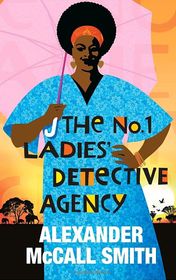
Alexander McCall Smith «The No.1 Ladies Detective Agency»
Category: Pre-intermediate (A2-B1)
-
detective
-
filmed
-
humor
User Rating: 0 / 5
Read more …
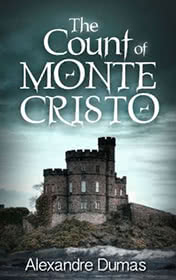
Alexandre Dumas «The Count of Monte Cristo»
Category: Pre-intermediate (A2-B1)
-
drama
-
adventure
-
classic
-
filmed
-
historical
User Rating: 0 / 5
Read more …

Alison Baxter «The USA»
Category: Pre-intermediate (A2-B1)
-
documentary
-
non-fiction
-
historical
-
nature
-
society
User Rating: 0 / 5
Read more …
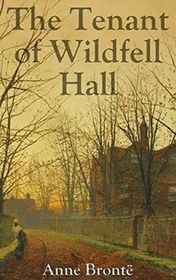
Anne Bronte «The Tenant of Wildfell Hall»
Category: Pre-intermediate (A2-B1)
-
drama
-
classic
-
historical
-
love story
User Rating: 0 / 5
Read more …

Anne Collins «British Life»
Category: Pre-intermediate (A2-B1)
-
documentary
-
non-fiction
-
politics
-
society
User Rating: 0 / 5
Read more …
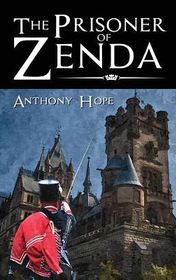
Anthony Hope «The Prisoner of Zenda»
Category: Pre-intermediate (A2-B1)
-
adventure
-
classic
-
fiction
-
love story
User Rating: 0 / 5
Read more …
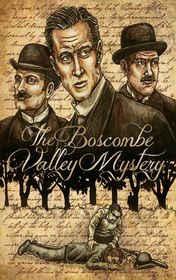
Arthur Conan Doyle «Sherlock Holmes and the Boscombe Valley Mystery»
Category: Pre-intermediate (A2-B1)
-
classic
-
crime
User Rating: 0 / 5
Read more …
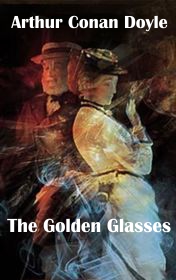
Arthur Conan Doyle «The Golden Glasses»
Category: Pre-intermediate (A2-B1)
-
detective
-
classic
-
crime
User Rating: 0 / 5
Read more …

Arthur Conan Doyle «The Lost World»
Category: Pre-intermediate (A2-B1)
-
adventure
-
classic
-
fiction
User Rating: 0 / 5
Read more …
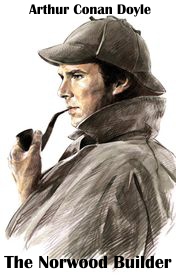
Arthur Conan Doyle «The Norwood Builder»
Category: Pre-intermediate (A2-B1)
-
detective
-
classic
-
crime
User Rating: 0 / 5
Read more …
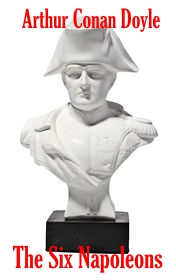
Arthur Conan Doyle «The Six Napoleons»
Category: Pre-intermediate (A2-B1)
-
detective
-
classic
-
crime
User Rating: 0 / 5
Read more …
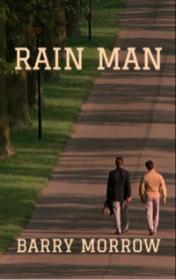
Barry Morrow «Rain Man»
Category: Pre-intermediate (A2-B1)
-
drama
-
adventure
-
filmed
-
society
User Rating: 0 / 5
Read more …

Bernard Smith «The Ring»
Category: Pre-intermediate (A2-B1)
-
detective
-
drama
-
love story
-
mystery
User Rating: 0 / 5
Read more …
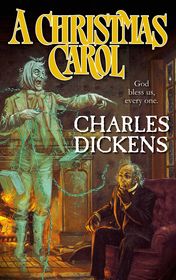
Charles Dickens «A Christmas Carol»
Category: Pre-intermediate (A2-B1)
-
classic
-
fiction
User Rating: 0 / 5
Read more …
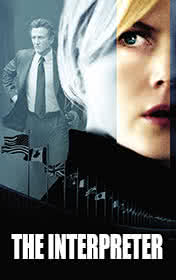
Charles Randolph «The Interpreter»
Category: Pre-intermediate (A2-B1)
-
adventure
-
love story
-
society
User Rating: 0 / 5
Read more …

Cherry Gilchrist «Princess Diana»
Category: Pre-intermediate (A2-B1)
-
documentary
-
drama
-
non-fiction
-
biography
-
life-story
-
love story
-
society
User Rating: 0 / 5
Read more …

Christine Lindop «Australia and New Zealand»
Category: Pre-intermediate (A2-B1)
-
documentary
-
non-fiction
User Rating: 0 / 5
Read more …
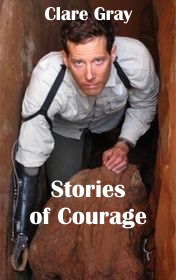
Clare Gray «Stories of Courage»
Category: Pre-intermediate (A2-B1)
-
documentary
-
drama
-
biography
-
life-story
-
politics
-
society
-
sport
-
tragedy
User Rating: 0 / 5
Read more …

Daniel Defoe «Robinson Crusoe»
Category: Pre-intermediate (A2-B1)
-
adventure
-
biography
-
classic
-
historical
User Rating: 0 / 5
Read more …
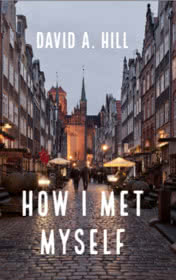
David A. Hill «How I Met Myself»
Category: Pre-intermediate (A2-B1)
-
fiction
User Rating: 0 / 5
Read more …

Edgar Allan Poe «Berenice»
Category: Pre-intermediate (A2-B1)
-
classic
-
horror
User Rating: 0 / 5
Read more …
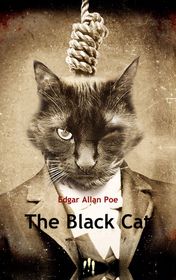
Edgar Allan Poe «The Black Cat»
Category: Pre-intermediate (A2-B1)
-
classic
-
horror
User Rating: 0 / 5
Read more …

Edgar Allan Poe «The Oval Portrait»
Category: Pre-intermediate (A2-B1)
-
classic
-
horror
User Rating: 0 / 5
Read more …
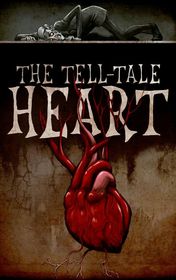
Edgar Allan Poe «The Tell-Tale Heart»
Category: Pre-intermediate (A2-B1)
-
classic
-
horror
User Rating: 0 / 5
Read more …
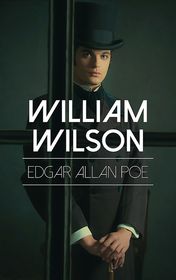
Edgar Allan Poe «William Wilson»
Category: Pre-intermediate (A2-B1)
-
classic
-
horror
User Rating: 0 / 5
Read more …
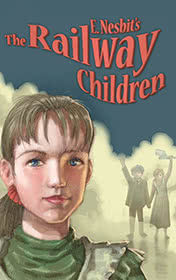
Edith Nesbit «The Railway Children»
Category: Pre-intermediate (A2-B1)
-
drama
-
adventure
-
filmed
-
historical
User Rating: 0 / 5
Read more …
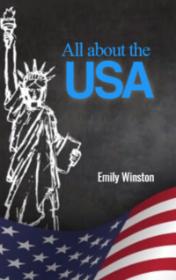
Emily Winston «All About the USA»
Category: Pre-intermediate (A2-B1)
-
documentary
-
non-fiction
-
historical
-
nature
-
society
-
War
User Rating: 0 / 5
Read more …
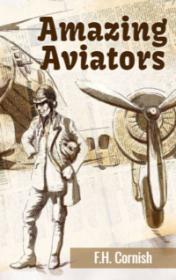
F.H. Cornish «Amazing Aviators»
Category: Pre-intermediate (A2-B1)
-
documentary
-
drama
-
non-fiction
-
biography
-
life-story
User Rating: 0 / 5
Read more …

Fiona Beddall «A History of Britain»
Category: Pre-intermediate (A2-B1)
-
biography
-
historical
User Rating: 0 / 5
Read more …

Frances Hodgson Burnett «The Secret Garden»
Category: Pre-intermediate (A2-B1)
-
classic
-
fantasy
-
mystery
-
teenager
User Rating: 0 / 5
Read more …
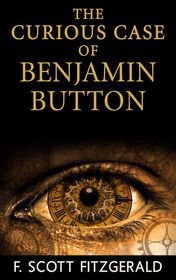
Francis Scott Fitzgerald «The Curious Case of Benjamin Button»
Category: Pre-intermediate (A2-B1)
-
classic
-
love story
-
mystery
User Rating: 0 / 5
Read more …

Francis Scott Fitzgerald «The Ice Palace»
Category: Pre-intermediate (A2-B1)
-
non-fiction
-
classic
-
love story
-
society
User Rating: 0 / 5
Read more …

Francis Scott Fitzgerald «The Offshore Pirate»
Category: Pre-intermediate (A2-B1)
-
non-fiction
-
classic
-
love story
User Rating: 0 / 5
Read more …

Freeman Wills Crofts «The Railway Crossing»
Category: Pre-intermediate (A2-B1)
-
detective
-
crime
User Rating: 0 / 5
Read more …
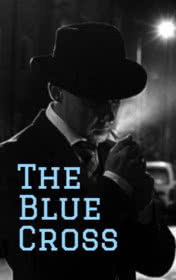
G. K. Chesterton «The Blue Cross»
Category: Pre-intermediate (A2-B1)
-
detective
-
crime
User Rating: 0 / 5
Read more …
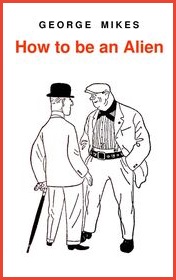
George Mikes «How to be an Alien»
Category: Pre-intermediate (A2-B1)
-
documentary
-
society
User Rating: 0 / 5
Read more …
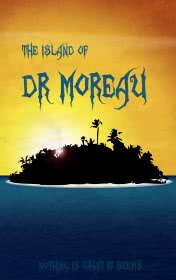
H. G. Wells «Island of Dr Moreau»
Category: Pre-intermediate (A2-B1)
-
detective
-
psychological
-
science fiction
-
tragedy
User Rating: 0 / 5
Read more …
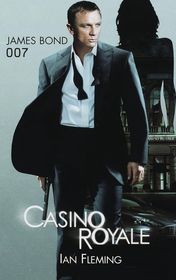
Ian Fleming «Casino Royale»
Category: Pre-intermediate (A2-B1)
-
detective
-
adventure
-
classic
User Rating: 0 / 5
Read more …
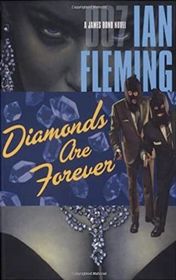
Ian Fleming «Diamonds are forever»
Category: Pre-intermediate (A2-B1)
-
detective
-
adventure
-
classic
User Rating: 0 / 5
Read more …

Irene Trimble «Pirates of the Caribbean. Part 2: Dead Man’s Chest»
Category: Pre-intermediate (A2-B1)
-
adventure
-
fantasy
-
filmed
User Rating: 0 / 5
Read more …

Irene Trimble «Pirates of the Caribbean. Part 3: At the World’s End»
Category: Pre-intermediate (A2-B1)
-
adventure
-
fantasy
-
filmed
User Rating: 0 / 5
Read more …

Isaac Asimov «I, Robot»
Category: Pre-intermediate (A2-B1)
-
fiction
-
science fiction
-
society
User Rating: 0 / 5
Read more …

Jack London «The Call of the Wild»
Category: Pre-intermediate (A2-B1)
-
drama
-
adventure
-
classic
-
nature
User Rating: 0 / 5
Read more …
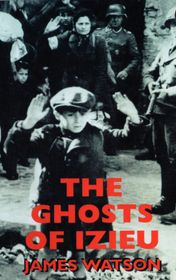
James Watson «The Ghosts of Izieu»
Category: Pre-intermediate (A2-B1)
-
drama
-
historical
-
society
-
War
User Rating: 0 / 5
Read more …
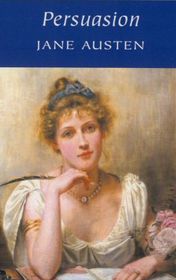
Jane Austen «Persuasion»
Category: Pre-intermediate (A2-B1)
-
classic
-
love story
User Rating: 0 / 5
Read more …
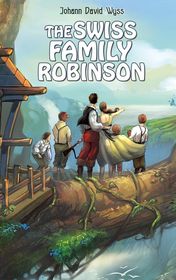
Johann Wyss «Swiss Family Robinson»
Category: Pre-intermediate (A2-B1)
-
adventure
-
classic
-
fantasy
-
nature
User Rating: 0 / 5
Read more …
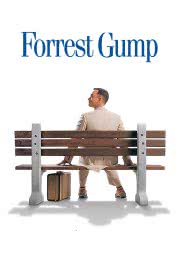
John Escott «Forrest Gump»
Category: Pre-intermediate (A2-B1)
-
drama
-
adventure
-
biography
-
filmed
-
life-story
User Rating: 0 / 5
Read more …
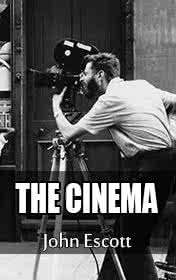
John Escott «The Cinema»
Category: Pre-intermediate (A2-B1)
-
documentary
-
filmed
User Rating: 0 / 5
Read more …
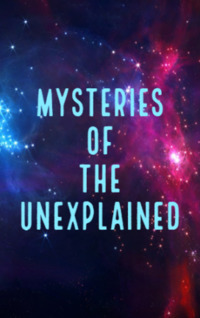
Kathy Burke «Mysteries of the Unexplained»
Category: Pre-intermediate (A2-B1)
-
documentary
-
non-fiction
-
historical
-
nature
-
science
-
space
User Rating: 0 / 5
Read more …
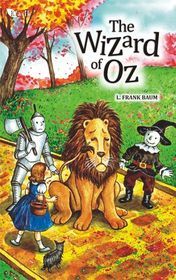
L. Frank Baum «The Wizard of Oz»
Category: Pre-intermediate (A2-B1)
-
adventure
-
classic
-
fairytale
-
fantasy
User Rating: 0 / 5
Read more …
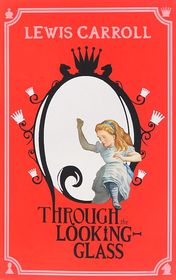
Lewis Carroll «Through the Looking-Glass»
Category: Pre-intermediate (A2-B1)
-
adventure
-
classic
-
fairytale
-
fantasy
User Rating: 0 / 5
Read more …
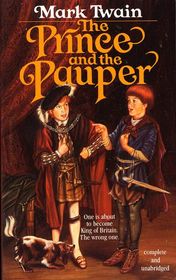
Mark Twain «Prince and Pauper»
Category: Pre-intermediate (A2-B1)
-
adventure
-
classic
-
historical
-
teenager
User Rating: 0 / 5
Read more …
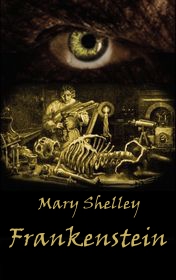
Mary Shelley «Frankenstein»
Category: Pre-intermediate (A2-B1)
-
drama
-
classic
-
fantasy
-
fiction
-
horror
-
tragedy
User Rating: 0 / 5
Read more …
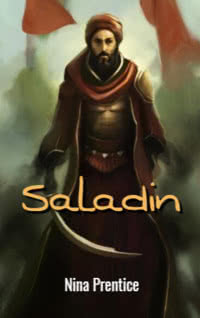
Nina Prentice «Saladin»
Category: Pre-intermediate (A2-B1)
-
biography
-
historical
-
life-story
-
War
User Rating: 0 / 5
Read more …
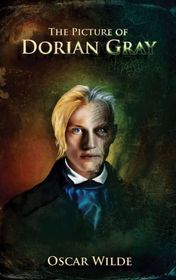
Oscar Wilde «The Picture of Dorian Gray»
Category: Pre-intermediate (A2-B1)
-
drama
-
classic
-
mystery
-
tragedy
User Rating: 0 / 5
Read more …
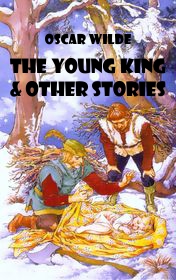
Oscar Wilde «The Young King & Other Stories»
Category: Pre-intermediate (A2-B1)
-
classic
-
fairytale
-
fantasy
User Rating: 0 / 5
Read more …

Paul Gallico «The Doll»
Category: Pre-intermediate (A2-B1)
-
love story
-
mystery
User Rating: 0 / 5
Read more …
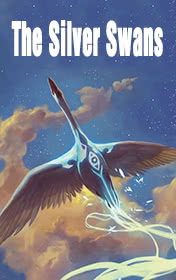
Paul Gallico «The Silver Swans»
Category: Pre-intermediate (A2-B1)
-
life-story
-
love story
User Rating: 0 / 5
Read more …
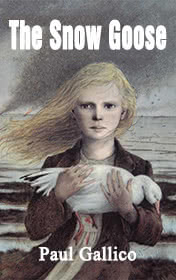
Paul Gallico «The Snow Goose»
Category: Pre-intermediate (A2-B1)
-
drama
User Rating: 0 / 5
Read more …
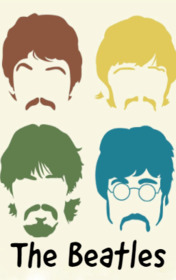
Paul Shipton «The Beatles»
Category: Pre-intermediate (A2-B1)
-
documentary
-
non-fiction
-
historical
User Rating: 0 / 5
Read more …

Rachel Bladon «Animal Kingdom»
Category: Pre-intermediate (A2-B1)
-
documentary
-
non-fiction
-
nature
-
science
User Rating: 0 / 5
Read more …

Rachel Bladon «England»
Category: Pre-intermediate (A2-B1)
-
documentary
-
historical
-
nature
User Rating: 0 / 5
Read more …

Robert Bloch «Psycho»
Category: Pre-intermediate (A2-B1)
-
crime
-
horror
-
mystery
User Rating: 0 / 5
Read more …
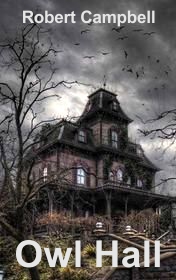
Robert Campbell «Owl Hall»
Category: Pre-intermediate (A2-B1)
-
adventure
-
horror
-
mystery
User Rating: 0 / 5
Read more …
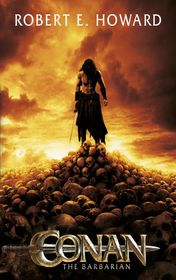
Robert E. Howard «Conan the Barbarian: Red Nails»
Category: Pre-intermediate (A2-B1)
-
adventure
-
fantasy
User Rating: 0 / 5
Read more …

Rosemary Border «Recycling»
Category: Pre-intermediate (A2-B1)
-
documentary
-
non-fiction
-
science
-
society
User Rating: 0 / 5
Read more …

Sheila Burnford «The Incredible Journey»
Category: Pre-intermediate (A2-B1)
-
adventure
-
filmed
-
nature
User Rating: 0 / 5
Read more …
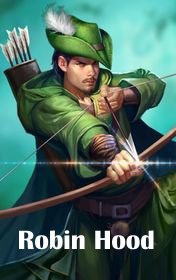
Stephen Colbourn «Robin Hood»
Category: Pre-intermediate (A2-B1)
-
adventure
-
fairytale
-
fantasy
-
historical
User Rating: 0 / 5
Read more …
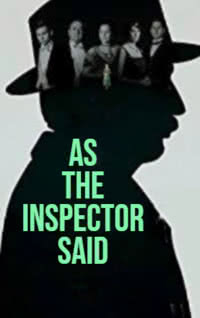
Syril Hare «As the Inspector Said»
Category: Pre-intermediate (A2-B1)
-
detective
-
crime
User Rating: 0 / 5
Read more …
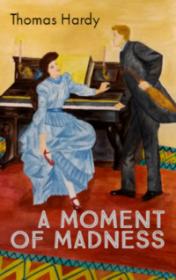
Thomas Hardy «A Moment of Madness»
Category: Pre-intermediate (A2-B1)
-
classic
-
horror
-
love story
-
mystery
User Rating: 0 / 5
Read more …
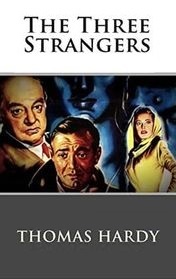
Thomas Hardy «The Three Strangers»
Category: Pre-intermediate (A2-B1)
-
classic
-
crime
-
horror
-
mystery
User Rating: 0 / 5
Read more …
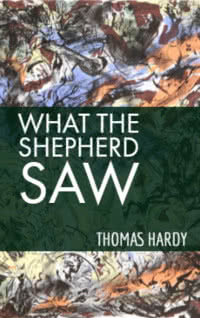
Thomas Hardy «What the Shepherd Saw»
Category: Pre-intermediate (A2-B1)
-
drama
-
classic
-
crime
-
horror
-
mystery
User Rating: 0 / 5
Read more …

Tim Vicary «Dinosaurs»
Category: Pre-intermediate (A2-B1)
-
documentary
-
historical
-
nature
-
science
User Rating: 0 / 5
Read more …

Tim Vicary «Space»
Category: Pre-intermediate (A2-B1)
-
documentary
-
non-fiction
-
science
-
space
User Rating: 0 / 5
Read more …
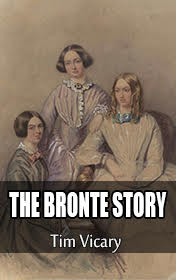
Tim Vicary «The Bronte Story»
Category: Pre-intermediate (A2-B1)
-
documentary
-
biography
-
historical
User Rating: 0 / 5
Read more …
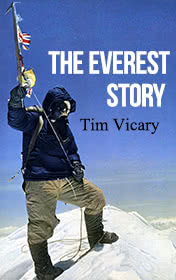
Tim Vicary «The Everest Story»
Category: Pre-intermediate (A2-B1)
-
documentary
-
non-fiction
-
biography
-
historical
-
sport
User Rating: 0 / 5
Read more …
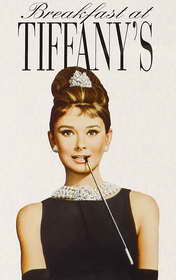
Truman Capote «Breakfast at Tiffany’s»
Category: Pre-intermediate (A2-B1)
-
adventure
-
love story
-
society
User Rating: 0 / 5
Read more …

Vicky Shipton «New York»
Category: Pre-intermediate (A2-B1)
-
documentary
-
non-fiction
-
historical
-
society
User Rating: 0 / 5
Read more …
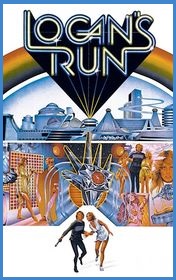
W.F. Nolan, G.C. Johnson «Logan’s Run»
Category: Pre-intermediate (A2-B1)
-
drama
-
fiction
-
politics
-
science fiction
-
society
User Rating: 0 / 5
Read more …

William Harris «Dangerous Game»
Category: Pre-intermediate (A2-B1)
-
drama
-
horror
-
mystery
User Rating: 0 / 5
Read more …



